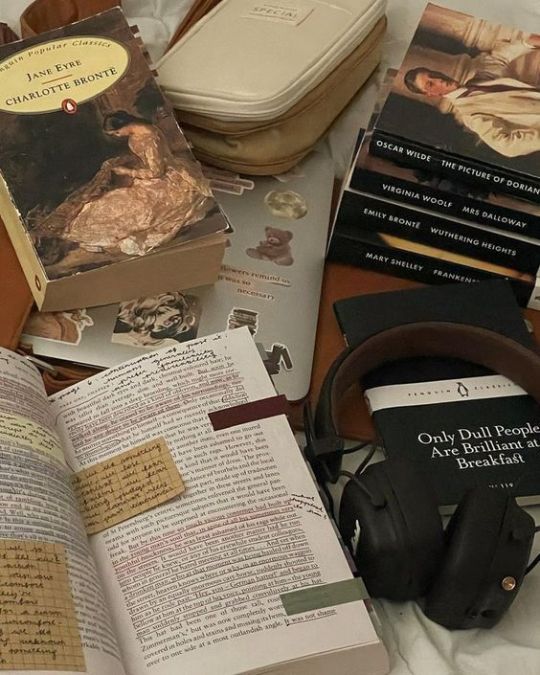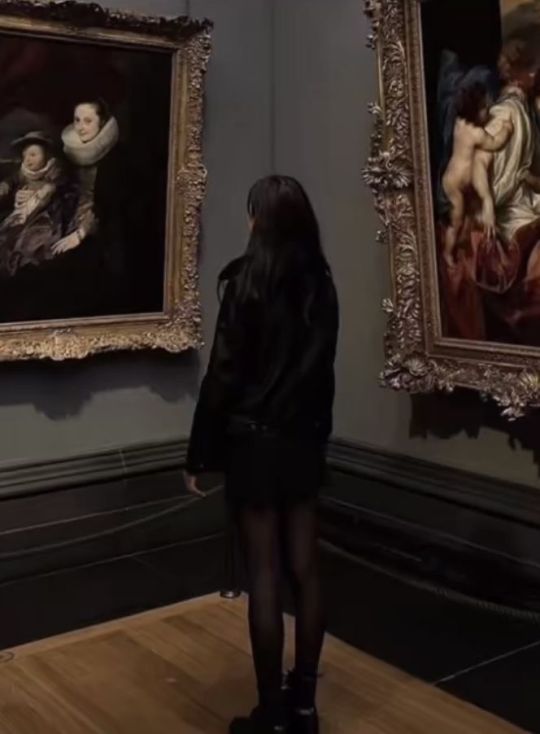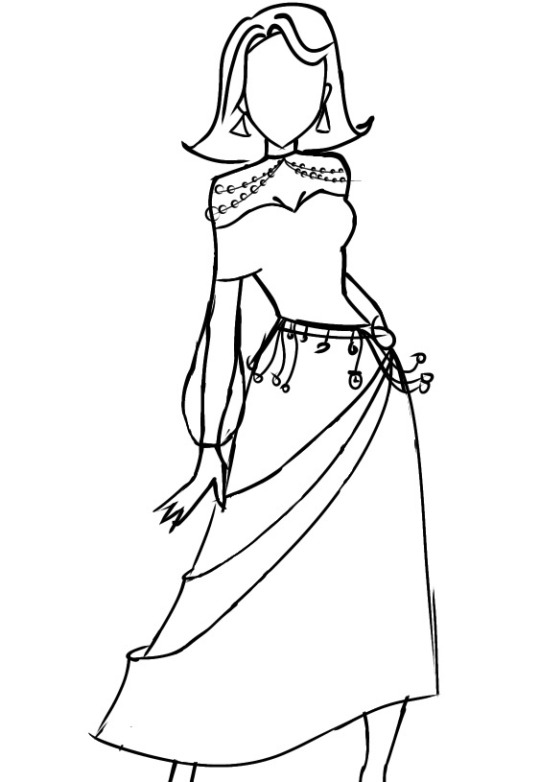#A Problem in Greek Ethics
Explore tagged Tumblr posts
Text
John Addington Symonds on 'Greek love'

'A problem in Greek Ethics', John Addington Symonds, privately printed in 1908.
One of the earliest English writers to attempt to address directly the subject of 'sexual inversion' as he called it, this book describes what he views as the unique position of ancient Greece in this respect.
This passage seems the best description I've read of how Ralph might have felt about finding a moral code that he could sign up to, outside the Christian one he was given. Still pretty strict, but it allowed him some standards.....
#John Addington Symonds#A Problem in Greek Ethics#the charioteer#mary renault#ralph lanyon#Phaedrus#Plato#Gay history#Gay identity
8 notes
·
View notes
Text
Ethics (oversimplified):
There are, broadly speaking, three ways of answering the question “did I do the right thing?”
Deontology (oversimplified):
An action is right if it is accordance with certain moral duties or commands. Actions are good only insofar as they follow rules, and how we feel when we follow the rules, and the consequences of following the rules, are of a secondary concern. You have duties. Perform them. It is a rule-following ethic.
Consequentialism (oversimplified):
An action is right if it brings about good consequences and avoids bad consequences. How we feel when we maximize consequences may be important, because pleasure and pain are consequences of actions. Rules can be broken if they produce too much pain or harm. If you break a rule, that’s okay, as long as it’s done to bring about a good or better state of affairs. Every action is justified or criticized on whether or not it produces good consequences.
Virtue Ethics (oversimplified):
An action is right if it the person does it in the right way— if their feelings, intentions, and beliefs are all lined up so that they can perform the action in a certain way. Rules and consequences are important, but what is most important is that the person genuinely believes that what they’re doing is right, and is actually doing the right thing, and does not struggle to do so. There is a right belief, right feeling, and right intention, and actions are judged according to these requirements.
#virtue#ethics#morals#moral philosophy#us politics#stoic philosophy#greek philosophy#philosophy#academia#marcus aurelius#trolly problem#aristotle.txt#critical thinking#education
13 notes
·
View notes
Text
thinking after work of setting aside some time to read Thebes (i found my sticky notes!) and answer the question tumblr anons have been asking: "is cartledge a usian hobbyist?" more at 6
#hapo rambles#yes i am still laughing about it#additional context is he's literally on the british museum parthenon marbles repatriation board#which in itself is an ethically complicated problem i won't go into but i still wouldn't use either of those words to describe him#i wanna be unamerican i wanna write you a love song#i wanna be unamerican and i wanna get all the words wrong!#stops singing for a moment and makes direct eye contact with you#i can see america from my house...#hapo reads thebes#hapo reads greek history
3 notes
·
View notes
Text
"In the 1750s, an Italian farmer digging a well stumbled upon a lavish villa in the ruins of Herculaneum. Inside was a sprawling library with hundreds of scrolls, untouched since Mount Vesuvius’ eruption in 79 C.E. Some of them were still neatly tucked away on the shelves.
This staggering discovery was the only complete library from antiquity ever found. But when 18th-century scholars tried to unroll the charred papyrus, the scrolls crumbled to pieces. They became resigned to the fact that the text hidden inside wouldn’t be revealed during their lifetimes.
In recent years, however, researchers realized that they were living in the generation that would finally solve the puzzle. Using artificial intelligence, they’ve developed methods to peer inside the Herculaneum scrolls without damaging them, revealing short passages of ancient text.
This month, researchers announced a new breakthrough. While analyzing a scroll known as PHerc. 172, they determined its title: On Vices. Based on other works, they think the full title is On Vices and Their Opposite Virtues and in Whom They Are and About What.
“We are thrilled to share that the written title of this scroll has been recovered from deep inside its carbonized folds of papyrus,” the Vesuvius Challenge, which is leading efforts to decipher the scrolls, says in a statement. “This is the first time the title of a still-rolled Herculaneum scroll has ever been recovered noninvasively.”
On Vices was written by Philodemus, a Greek philosopher who lived in Herculaneum more than a century before Vesuvius’ eruption. Born around 110 B.C.E., Philodemus studied at a school in Athens founded several centuries earlier by the influential philosopher Epicurus, who believed in achieving happiness by pursuing certain specific forms of pleasure.
“This will be a great opportunity to learn more about Philodemus’ ethical views and to get a better view of the On Vices as a whole,” Michael McOsker, a papyrologist at University College London who is working with the Vesuvius Challenge, tells CNN’s Catherine Nicholls.
When it launched in 2023, the Vesuvius Challenge offered more than $1 million in prize money to citizen scientists around the world who could use A.I. to help decipher scans of the Herculaneum scrolls.
Spearheaded by Brent Seales, a computer scientist at the University of Kentucky, the team scanned several of the scrolls and uploaded the data for anyone to use. To earn the prize money, participants competed to be the first to reach a series of milestones.
Reading the papyrus involves solving several difficult problems. After the rolled-up scrolls are scanned, their many layers need to be separated out and flattened into two-dimensional segments. At that point, the carbon-based ink usually isn’t visible in the scans, so machine-learning models are necessary to identify the inked sections.
In late 2023, a computer science student revealed the first word on an unopened scroll: “porphyras,” an ancient Greek term for “purple.” Months later, participants worked out 2,000 characters of text, which discussed pleasures such as music and food.
But PHerc. 172 is different from these earlier scrolls. When researchers scanned it last summer, they realized that some of the ink was visible in the images. They aren’t sure why this scroll is so much more legible, though they hypothesize it’s because the ink contains a denser contaminant such as lead, according to the University of Oxford’s Bodleian Libraries, which houses the scroll.
In early May, the Vesuvius Challenge announced that contestants Marcel Roth and Micha Nowak, computer scientists at Germany’s University of Würzburg, would receive $60,000 for deciphering the title. Sean Johnson, a researcher with the Vesuvius Challenge, had independently identified the title around the same time.
Researchers are anticipating many more breakthroughs on the horizon. In the past three months alone, they’ve already scanned dozens of new scrolls.
“The pace is ramping up very quickly,” McOsker tells the Guardian’s Ian Sample. “All of the technological progress that’s been made on this has been in the last three to five years—and on the timescales of classicists, that’s unbelievable.”"
-via Smithsonian, May 16, 2025
#I've been following this project for a couple of years now it's honestly super exciting#we are going to read scrolls that were charred shut in antiquity!!! that people thought could never be read#because they could never be unrolled#no one was read these words in 2000 years!!!!#until now!!!!!#archeology#ai#herculaneum#pompeii#vesuvius#citizen science#classics#classical studies#classical literature#ancient rome#artificial intelligence#roman history#ancient history#philosophy#epicurus#epicurean#good news#hope
571 notes
·
View notes
Text
wrist - @rosekillermicrofic - wc: 540

Evan wasn’t planning on falling for anyone that semester—especially not Barty Crouch Jr.
It started with the Philosophy of Ethics class. Evan liked it because it was early and quiet, and the professor had a habit of quoting Greek tragedies with unnecessary dramatics. Barty, on the other hand, liked arguing with the professor, flipping his pen between his fingers like he was trying to decide whether to stab someone or take notes. Evan liked watching him do both.
They didn’t talk often—just the occasional exchange of shared glances when someone said something particularly idiotic. Once, Barty leaned over to mutter, “If he quotes Plato again I’m dropping out,” and Evan had bitten his lip so hard to keep from laughing he’d drawn blood.
But today was different.
Barty walked in ten minutes late, didn’t bother offering an excuse, and slid into the seat beside Evan with the kind of grace that said I don’t give a damn—which, ironically, made Evan care more. He dropped his bag on the floor, yanked up the sleeve of his hoodie, and immediately flinched.
Evan noticed.
He always noticed Barty—how his fingers trembled slightly when he was angry, how he chewed on the inside of his cheek when he was bored. But this was new. There was a bandage around his wrist, sloppily wrapped, barely holding.
Evan stared. Then, softly, “What happened to your wrist?”
Barty froze for half a second, then rolled his sleeve back down.
“Door,” he said. “Got caught.”
Evan blinked. “A door?”
“Yeah.” He picked at the edge of the desk like it had wronged him. “You know. Slammed shut. Stupid thing.”
“That’s oddly vague for someone who argued last week about Kantian ethics for thirty minutes.”
Barty smirked, but it didn’t reach his eyes. “You writing a paper on me or something?”
Evan considered it. “Maybe.”
They didn’t speak again for the rest of the class. The professor rambled on about utilitarianism, but Evan couldn’t focus. The bandage hadn’t looked fresh. It looked like it had been there a while, changed sloppily. Like someone had done it one-handed. Like someone didn’t care enough to do it right.
After class, Barty stood to leave like always, quick and silent. But Evan grabbed his sleeve.
“Hey,” he said. “You’re not fine.”
Barty stilled, glancing down at where Evan’s hand touched his arm. “I didn’t say I was.”
“Then why lie?”
He pulled away, but not angrily. Just… tired. “Because no one really wants the truth, Rosier.”
Evan hated that. Hated how Barty said it like a fact, like he knew. Like he'd tested it and been proven right every time. Evan swallowed hard.
“I do.”
Barty looked up. His expression didn’t change, but something behind his eyes flickered.
“That’s your problem.”
He started to walk away.
“Wait,” Evan called, more desperate than he meant to sound. “Let me—look, if you don’t want to talk, that’s fine. But at least let me redo the bandage.”
Barty stopped in the doorway, back to him. For a second, Evan thought he’d laugh, maybe throw out a sharp, cutting comment. But instead, he said, quietly:
“…You have a first-aid kit?”
“In my dorm.”
Barty turned. “Lead the way, then, Florence Nightingale.”

161 notes
·
View notes
Text
Writing Notes: Philosophy

Philosophy - aims to ascertain basic existentialist truths of the world around us.
The term comes from “philosophia,” a word that has Greek and Latin origins.
Philosophers examine the nature of reality by posing philosophical questions or problems that they then attempt to solve through critical thinking.
Branches of Philosophy
Much of the value of philosophy lies in the specialization and categorization of philosophical questions that cannot be easily answered with empirical data or scientific knowledge.
Scholars organize such questions into different branches of thought, although there are perhaps as many ways of categorizing the different branches as there are scholars.
Here are just 3 of the potentially dozens of branches of philosophy:
Epistemology: Also called the theory of knowledge, this analytic philosophy studies the scope, validity, and extent of human knowledge—in other words, concepts surrounding how we can confirm what we think we know is true. Immanuel Kant’s Critique of Pure Reason is an example of epistemology. In this work, Kant disagrees with philosopher David Hume, that our experiences and perceptions of things are subjective—therefore, our knowledge of things is not universal. Epistemology overlaps with many other branches of philosophy since human knowledge is relevant in other areas, such as the philosophy of language and the philosophy of mind.
Ethics: The moral philosophy of ethics is one of the oldest and broadest branches of philosophy. Ethics works to debate values of good and evil and questions where human actions fall on that spectrum. The ancient Greeks struggled with these questions as they developed their societies along two schools of thought—Stoicism and Epicureanism. Although these two schools, established in 300 BC, shared several tenets, they differed in describing the best way to live. Stoics believed that living a just and virtuous life was paramount, while Epicureans believed the search for pleasure should be the highest priority. Due to its broad nature, ethics is pervasive in nearly every academic discipline and overlaps within several other areas of thought, including the philosophy of history, the philosophy of law, and the philosophy of religion.
Metaphysics: The principles of metaphysics question our place in the world and the meaning of life and human existence. Metaphysics, like ethics, began as one of the main branches of philosophy in ancient Greece. One of the premier philosophical works that established the branch was Aristotle’s Physics. In exploring the working mechanics of our reality, Aristotle created foundations of thought that became important to western institutions and religions, like Christianity. Aristotle’s work greatly influenced the thirteenth-century Italian priest Thomas Aquinas, who utilized aspects of Aristotle’s philosophy of nature to confirm the existence of God as the omnipotent architect of the universe. Metaphysics often encompasses or overlaps with the philosophy of science—for example, as scientists grapple with questions related to humanity’s literal and figurative place in the universe.
Historical Figures of Eastern Philosophy
Learn how these notable eastern philosophers shaped their cultures with religion and philosophical breakthroughs throughout the history of philosophy:
Laozi (born circa 570 BCE): The historical existence of Laozi, or Lao Tzu, is disputed, but some believe the Chinese philosopher is the author of the Tao Te Ching, a manuscript central to the philosophical religion known as Daoism (or Taoism). The metaphysical and ethical philosophy promotes living in harmony with nature and doing no harm to others.
Confucius (551–479 BCE): The teachings of this Chinese philosopher and politician formulated the basic tenets of East Asian societies. Known as Confucianism, the Chinese philosophy encouraged family loyalty, ancestral appreciation, and education—concepts that remain important to modern Chinese traditions.
Siddhartha Gautama (born in fifth century BCE): Historians and academics dispute the facts of the life of Siddhartha Gautama, also known as the Buddha. By some traditions, he was born into an aristocratic family and enjoyed an entitled life until he decided to pursue a nomadic and ascetic lifestyle. Over time, people attributed teachings to him on self-restraint, meditation, and mindfulness—ideas that grew into a popular world religion.
Jalāl ad-Dīn Mohammad Rūmī (1207–1273): A thirteenth-century Persian poet, Jalāl ad-Dīn Mohammad Rūmī wrote Quranic verses and Sufi poems that scholars still translate and publish today. A large part of philosophy in Rumi’s poetry is his set of values around love and religion. His philosophy of life focused on using art and self-expression to bring humans closer to God.
Historical Figures of Western Philosophy
Ancient Greek philosophers established western philosophy as early as the sixth century BCE. Here are a handful of Greek philosophy figures who created theoretical foundations and frameworks that future generations could use to question their own complex societies:
Socrates (470–399 BCE): The Athenian philosopher Socrates is credited as the founding father of western philosophy and the Socratic method—a form of questioning that scholars in multiple areas of philosophy use to pinpoint shortcomings in logic or beliefs. His teachings were never published but lived on through the work of his student, Plato.
Plato (428/427–348/347 BCE): An influential thinker of the classical Greek period, Plato is famous for his theory of forms, which questions the connection between our minds and reality. He is also remembered for his several published works, like The Republic, which communicated his social and political philosophy.
Aristotle (384–322 BCE): The philosopher Aristotle was a star pupil of Plato’s (another ancient philosopher) and went on to found his own school, called Lyceum. During his career, Aristotle collected and simplified the philosophies of his predecessors and contributed to philosophical work in nearly every aspect of classical Greek culture. He was the first ancient philosopher to analyze the concept of free will.
René Descartes (1596–1650): A French mathematician and philosopher, René Descartes is best known for the existentialism theories he put forth in Discourse on the Method and his statement: “I think, therefore I am.” Descartes’ natural philosophy and metaphysical inquiries, as well as his thoughts on the existence of God, established him as a pioneer of modern philosophy.
Georg Wilhelm Friedrich Hegel (1770–1831): German philosopher Georg Hegel is best known for his metaphysical concept known as idealism. The concept dictates that the perceptions of a self-conscious mind result in the most accurate interpretations of concrete objects. His work had a dramatic impact on western philosophy in the twentieth century and influenced the works of philosophers Karl Marx and Friedrich Nietzsche.
Source ⚜ More: Notes & References ⚜ Writing Resources PDFs
#philosophy#writing notes#studyblr#writeblr#dark academia#writing reference#writing inspiration#worldbuilding#literature#writers on tumblr#writing prompt#spilled ink#history#creative writing#writing ideas#light academia#ivan kramskoy#writing resources
127 notes
·
View notes
Text
the classes | mandatory
------------------------------------------------------------------------------
date: march 23, 2025. 3:01 am. (starting). i fell asleep. lmao. 10:30
------------------------------------------------------------------------------





✧˖*°࿐ The Mandatory Classes
𓂃༊veltrius Lumos Academy's mandatory curriculum blends rigorous academics with cultural and artistic exploration. these courses ensure students develop critical thinking, research skills, creativity, and problem-solving abilities, preparing them for higher education and global careers.





✧˖*°࿐ Language Studies
𓂃༊students are required to take Haiqinian, Greek, and English throughout their academic journey.
*ೃ༄Haiqinian Language and Composition (3 years, Pre-AP & AP Available)
𓂃༊ Year 1 (Pre-AP or Regular Haiqinian Language & Composition I):
✧ 𓂃 › grammar & sentence structure: verb conjugations, syntax, and advanced sentence formation.
✧ 𓂃 › composition: essay writing, formal letters, and literary analysis.
✧ 𓂃 › literary study: introduction to Haiqinian classical and modern literature.
𓂃༊ Year 2 (AP or Regular Haiqinian Language & Composition II):
✧ 𓂃 › advanced grammar & writing: rhetorical devices, argumentation, and structured compositions.
✧ 𓂃 › comparative literature: study of Haiqinian texts alongside global literature.
✧ 𓂃 › research & analysis: writing research papers and learning source evaluation.
𓂃༊ Year 3 (AP or Regular Haiqinian Literature & Composition III):
✧ 𓂃 › critical literary analysis: deep dive into Haiqinian poetry, novels, and plays.
✧ 𓂃 › creative writing & public speaking: writing short stories, poetry, and persuasive speeches.
✧ 𓂃 › capstone research paper: a long-form thesis-style paper analyzing a Haiqinian literary work.
*ೃ༄Greek Language & Literature (3 years, required for all students)
𓂃༊ Year 1 (Greek I – Basic Grammar & Conversation):
✧ 𓂃 › introduction to the greek alphabet & pronunciation.
✧ 𓂃 › basic sentence structure: verb forms, nouns, and adjectives.
✧ 𓂃 › conversational skills: daily interactions, greetings, and essential expressions.
𓂃༊ Year 2 (Greek II – Intermediate Grammar, Translation & History):
✧ 𓂃 › complex sentence structures: subjunctive, conditional, and imperative verb forms.
✧ 𓂃 › translation practice: excerpts from Homer, Aesop, and historical texts.
✧ 𓂃 › greek culture & history: myths, political systems, and philosophy.
𓂃༊ Year 3 (Greek III – Advanced Reading, Writing & Translation):
✧ 𓂃 › advanced text analysis: works of Plato, Sophocles, and Aristophanes.
✧ 𓂃 › academic writing & discussion: essays on Greek mythology, ethics, and politics.
✧ 𓂃 › capstone project: a final presentation translating and analyzing a classical Greek work.
*ೃ༄English Language & Composition (2 years, English III is an elective)
𓂃༊ Year 1 (English I – General English Skills, Literature & Creative Writing):
✧ 𓂃 › grammar & vocabulary: structure, syntax, and advanced composition skills.
✧ 𓂃 › literature study: analysis of classic and modern English literature.
✧ 𓂃 › creative writing: poetry, short stories, and personal narratives.
𓂃༊ Year 2 (English II – Critical Thinking & Analytical Writing):
✧ 𓂃 › advanced literature study: British and American literature from different eras.
✧ 𓂃 › essay writing & rhetoric: persuasive essays, literary analysis, and argument development.
✧ 𓂃 › public speaking: presentations, debates, and discussions on literary themes.
𓂃༊ Year 3 (English III – Elective, Optional for Advanced Study):
✧ 𓂃 › world literature focus: exploring literature from South America, Asia, and Europe.
✧ 𓂃 › research & thesis writing: students write and defend a long-form literary thesis.
✧ 𓂃 › experimental writing styles: creative non-fiction, stream-of-consciousness, and hybrid prose.





✧˖*°࿐ Mathematics (3 years, AP Available)
*ೃ༄Core Math Progression:
𓂃༊ Year 1 (Algebra I w/ Probability – Pre-AP or Regular):
✧ 𓂃 › linear & quadratic equations: graphing, inequalities, and polynomials.
✧ 𓂃 › probability & statistics: basic probability theory, combinatorics, and statistics.
✧ 𓂃 › real-world applications: business forecasting, data analysis, and logical reasoning.
𓂃༊ Year 2 (Algebra II w/ Statistics + Precalculus – AP or Regular):
✧ 𓂃 › advanced algebra concepts: exponential/logarithmic functions, matrices, and conic sections.
✧ 𓂃 › statistics & data science: regression analysis, probability distributions, and data visualization.
✧ 𓂃 › pre-calculus introduction: trigonometric functions, sequences, and limits.
𓂃༊ Year 3 (AP Calculus + Finance or Regular Finance):
✧ 𓂃 › differential & integral calculus: derivatives, integrals, and applications in physics/economics.
✧ 𓂃 › financial mathematics: investments, banking, risk analysis, and economic modeling.
✧ 𓂃 › capstone project: using calculus and finance principles to analyze a real-world financial trend.





✧˖*°࿐ History & Social Sciences (3 years, AP Available)
*ೃ༄Year 1 (AP or Regular Haiqin History):
𓂃༊ linear & quadratic equations: graphing, inequalities, and polynomials.
𓂃༊ probability & statistics: basic probability theory, combinatorics, and statistics.
𓂃༊ real-world applications: business forecasting, data analysis, and logical reasoning.
*ೃ༄Year 2 (AP or Regular World History):
𓂃༊ advanced algebra concepts: exponential/logarithmic functions, matrices, and conic sections.
𓂃༊ statistics & data science: regression analysis, probability distributions, and data visualization.
𓂃༊ pre-calculus introduction: trigonometric functions, sequences, and limits.
*ೃ༄Year 3 (AP or Regular Government & Economics):
𓂃༊ differential & integral calculus: derivatives, integrals, and applications in physics/economics.
𓂃༊ financial mathematics: investments, banking, risk analysis, and economic modeling.
𓂃༊ capstone project: using calculus and finance principles to analyze a real-world financial trend.





✧˖*°࿐ Science Studies (3 years, AP Available for Some Courses)
*ೃ༄Year 1 (AP or Regular Chemistry):
𓂃༊ atomic theory & molecular structure: periodic trends and chemical bonding.
𓂃༊ thermodynamics & reaction kinetics: understanding physical and chemical reactions.
𓂃༊ lab work: hands-on chemical experiments, titration, and organic synthesis.
*ೃ༄Year 2 & 3 (Choice of Science, Must Take at Least One More):
𓂃༊ environmental science: climate change, ecosystems, and sustainable development.
𓂃༊ forensics: DNA analysis, fingerprinting, toxicology, and forensic anthropology.
𓂃༊ anatomy & physiology: human body systems, genetics, and medical applications.
𓂃༊ physics: classical mechanics, electromagnetism, and astrophysics.
𓂃༊ marine biology: ocean ecosystems, marine conservation, and field research.





✧˖*°࿐ Specialized & Cultural Studies
*ೃ༄AP or Regular Myths & Legends:
𓂃༊ greek & roman mythology: The Iliad, The Odyssey, Aeneid.
𓂃༊ comparative mythology: Norse, Celtic, Japanese, and Mesopotamian myths.
𓂃༊ symbolism & influence: how mythology influences modern media and storytelling.
*ೃ༄Astrology I (AP or Regular):
𓂃༊ foundations of astrology: birth charts, planetary movements, zodiac signs.
𓂃༊ cultural perspectives: astrology in Greek, Chinese, and Vedic traditions.
𓂃༊ scientific & spiritual debate: skepticism vs. belief, practical applications.
#reyaint#reality shifting#shiftblr#reality shifter#shifting#shifting community#shifting motivation#anti shifters dni#dr scrapbook#boarding school dr
54 notes
·
View notes
Text



She
A/N: hii! I’ve had this in my drafts since July and it’s finally seeing the light of day. This is my first fic on this acc and I’m so excited. Smut, smut, smut!

“GOD!” You exclaimed after hitting a messed up shot.
“Alright ladies, that’s practice for today. Y/l/n, see me before you leave.” The coach dismissed the team before turning to go to her office.
After showering and trying to mentally gather yourself as well as your items, you leave the locker rooms in suit of the coach’s office.
Her head darts up at the knock. “Ah, y/l/n”. have a seat.”
”Okay.. is there something wrong, coach..?”
“Yes.”
“I know my game was a little off today, but you know me. You kn ow I’ll work twice as hard to perfe-”
”That’s it! that’s the problem, my dear.”
I stare at her unblinkingly, not following where the conversation is going.
Coach looks around before getting up to gently push the door shut. “Look, you’re the best player on this damn team. Don’t tell Tashi that i said that. If you do, I’ll deny it. You absolutely need to rest. You need to take a break. I admire your work ethic and how relentless you are. Other girls let their hair down and go to football parties, meet boys, and indulge in whatever other safe but temporary distractions that are available to you all on campus. My point is, Everyone has bad days and everyone needs to physically, as well as mentally REST! You need to enjoy yourself and to be reminded that college experiences are far beyond th court. Take a few days to unfocus, enjoy yourself, and like actually chill. I’m putting you out of practice, at least for a few days. Come back Monday, Tiger. “
Tiger and panther were the nicknames she’d given you and Tashi.
You stare at the woman in disbelief. “You-you’re benching me?”
She rolls her eyes. “Oh my, y/l/n. Don’t be so dramatic, i’m giving you an excused mini vacation.. that you may not want, but need. It’s also because I care about you. Rest up, tiger. Come back Monday when you’ve gotten full amounts of beauty sleep and some cool zen experience.” She lightheartedly laughs while patting my shoulder.
I nod and take that as my cue to leave
When I walk out of the gym, Art’s there as expected.
”You know you don’t have to pick me up every single day, right?” I scrunch my nose at the guy as he takes my bag off of my shoulder.
“Noo, what kind of best friend would i be if that were the case?” He responds to my expressions with a playful pout.
“The normal kind, the kind that knows I don’t need s personal on-campus bodyguard.”
“Yeah, yeah. Are you hungry?” he peers down at you.
Art is like a 6’2 Greek statue with the demeanor of a golden retriever. He is absolutely the sweetest fucking boy ever. Though, there’s a deep instinctive and primal side of him that you unknowingly bring out. Everyone who nears the two of you can see it. In the way his eyes faintly darken and gloss over when people come too close to you, or when anyone stares a little too long. In the way he hovers next to you, by your side or slightly behind your smaller frame. The way his smile brightens when seeing you, the way his attention is immediately on you when you’re in the same vicinity.. yeah, you definitely got him beat.
You know your best friend cares for you, though. The way he always picks you up from practice, even when he’s all tired and sweaty from those of his own. You appreciate how he always comforts you, buys your favorite food, and other pretty little things that he comes across just because it makes him think of you. He definitely loves you, as you do him… though he dreams of loving you in more ways than listed.
…
”yes, two of those. A Pepsi as well, please.” He finishes off his conversation and hangs up his phone. “Food should be here in an hour , they’re super busy tonight.. wanna talk to me about what’s been bothering you?”
“What’s been bothering me? How do you know something has BEEN bothering me? I Don’t recall giving you any hints.”
“That’s cause you don’t need to,” he nudges my nose and rubs a warm hand up and down my back.
“Mmm.” I moan and lean into his touch. ”coach fucking benched me. well, not exactly. She told me to take the rest of the week off.. mental/physical relaxation… enjoy college distractions like my friends.. blah blah blah. Plus my forehand was completely fucked today.”
he nods “mhm, i see.”
”what?” You raise your brows at him pointedly. ”what are you holding back right now?” Art is always honest with you, but sometimes he won’t exactly share all of his thoughts in steering clear of rocking the boat. The worst fucking thing he could possibly think of in his mind is a not being on talking terms with you. You’re his Jesus on earth, and not having you would be hell.
“I just,..I know you might not exactly agree with this.. but i agree with your coach, i think she’s right.”
“What? Why?”
”I mean come on, y/n. She sent you on the break that I’m sure most of your teammates probably wish that they could have right now. You also are like 98 percent work, focus. Even I, your best friend, have barely seen that two percent.”
”great, you too.” You groan.
“I’m being honest,.. When’s the last time you’ve eaten junk food aside from what’s gonna be here soon? Or the last time you went to a party, had an orgasm, or even slept past ten a.m.?
“Wait, wait, wait! We’re not gonna roll past that like you didn’t just say what you just said!” At this point, you’re laughing and holding your sides.
”What? I heard from Patrick that it's one of the best ways to calm down and de-stress. He swears it helps his tennis game.”
”..yeah, and Patrick is a fucking Oaf with a sucky serve.”
“Regardless, that was a kind thing for your coach to do and you have to let people help you take care of yourself. Let me help you.” There was a shift in his tone that made you shiver a little. Art was always careful, fair, and gentle with you.. but there was more of a firmness in his tone. He meant what he said and needed for you to listen.
”H-how are you gonna help me?”
He smirks before standing up and retrieving a white box from his closet. ”There aren’t any parties that I’m aware of yet, but we can start by checking other things off the list.” He removes the lid, revealing a brand new, solid blue colored vibrating wand.”
”God, Art. Why the hell do you have that??” You blush bashfully.
”For you, Princess.” Hee kneels and removes your hands that hide your face from his view, making sure that looked in his eyes as he confessed to you. “I know it's wishful thinking but I’ve been dying to please you. I knew I needed to make you feel good in every way that I could, ever since I met you. I’ll do it in any and every way that you’ll let me, in any way that you’re comfortable with. I didn’t know if or when you’d ever be ready but I’ve been keeping this for you.”
“Art. Let me get this straight,” you rub your temples with two fingers. “You bought a vibrator to use on me just in case..?”
A slight blush crept its way across his pale skin. “Y-yeah, i just- I love you. Please let me make you feel good?” Looking up at you, his eyes slightly watered as they pierced your own.
You nearly moaned at the sight. He was desperately begging. Art felt like he needed to make you orgasm more than he needed to breathe air, they were equal urgencies in his brain.
You cleared your throat, ‘yes, you can.”
You’ve never seen him move so swiftly, tugging at those tiny little shorts that you insist on teasing him with.
He was about to put your leopard print panties in his pocket when you softly slapped his face. “When did I say you could keep those, hmm?”
You snatch the piece of fabric from him and squeeze his jaw a little. “Open.” He obeys and just as quickly, you stuff the panties in his mouth. He groans when you do.
”Did I say you could have those?” Art shakes his head no.
”If you want to keep my fucking panties, then you need to ask.”
He mumbles an inaudible few words that you assume string together the question you want to hear and grant him permission. ”Sure. Keep them, you fucking perv.”
Art tucks the panties in his pants pocket, visibly hard to the point where it looks like it hurts.
He presses a couple soft kisses to your clit. “Are you ready?” He asks you as he puts the toy in its lowest setting.
“Mhm” you nod.
He instantly and effortlessly picks you up to put you on the bed and spread your legs.
”how’s that?” He moves the speed up a notch
”s-so good.”
….
After you’ve had an orgasm with the first three settings, he stalks between your legs to lick the juices that drip from your pretty brown pussy.
”mm, such a sweet girl. Fuck, i love you. Shhh that’s okay.. just one more.”
”oh n-no”
“Yes. Open your legs.” He commands in deep and louder tone. Your body obliges before your head can catch up. You hear the vibrations get faster before you feel the wand back on your pearl.
”Ohh, ARTTT!” Your legs shake and juices fly all over him from the neck up.
”look at you, so sensitive, making a mess like this.” He gives you one of the purest smiles you’ve ever seen on his face. It’d be wholesome if the circumstances weren’t so fucking filthy.
You’re dizzy and overstimulated when he’s slurping up all the juices and cleaning you up. Art pulls out a fresh pair of underwear and a night gown before quickly dresses you in them. “There you go, all set.” He pecks your mound through the panties before standing and you’re just taking it in all woozily.
The door bell rings. “Stay on the bed, I’ll be right back.
After you’ve eaten, the two of you sit on his bed talking about nothing and everything.
”The vibrator was a shock, but i don’t know why you having panties and pajamas that fit me perfectly is just as shocking.”
Art’s Adam's apple bobs with his laughter and you can’t help but kiss his neck.
43 notes
·
View notes
Text
“One general description of madness, it seems to us, might be found in the statement that madness is a preference for the symbol over that which it represents. The most obvious example is the religious maniac, in whom the worship of Christianity involves the negation of all those ideas of integrity and mercy for which Christianity stands.
But there are many other examples. Money, for example, is a symbol; it symbolises wine and horses and beautiful vesture and high houses, the great cities of the world and the quiet tent by the river. The miser is a madman, because he prefers money to all these things; because he prefers the symbol to the reality.
But books are also a symbol; they symbolise man's impression of existence, and it may at least be maintained that the man who has come to prefer books to life is a maniac after the same fashion as the miser. A book is assuredly a sacred object. In a book certainly the largest jewels are shut in the smallest casket. But that does not alter the fact that superstition begins when the casket is valued more than the jewels. This is the great sin of idolatry, against which religion has so constantly warned us […]
Idolatry exists wherever the thing which originally gave us happiness becomes at last more important than happiness itself. Drunkenness, for example, may be fairly described as an engrossing hobby. And drunkenness is, when really comprehended in its inward and psychological reality, a typical example of idolatry […]
Now in this sense bibliomania is capable of becoming a kind of drunkenness. There is a class of men who do actually prefer books to everything with which books are concerned, to lovely places, to heroic actions, to experiment, to adventure, to religion. They read of godlike statues, and are not ashamed of their own frowsy and lazy ugliness; they study the records of open and magnanimous deeds, and are not ashamed of their own secretive and self-indulged lives. They have become citizens of an unreal world, and, like the Indian in his Paradise, pursue with shadowy hounds a shadowy deer. And that way lies madness.
In the limbo of the misers and the drunkards, which is the limbo of idolators, many great scholars may be found. Here, as in almost all ethical problems, the difficulty arises far less from the presence of some vicious tendency than from the absence of some essential virtues. The possibilities of mental derangement which exist in literature are due not so much to a love of books as to an indifference to life and sentiment and everything that books record.
In an ideal state, gentlemen who were immersed in abstruse calculations and discoveries would be forced by Act of Parliament to talk for forty-five minutes to an ostler or a landlady, and to ride across Hampstead Heath on a donkey. They would be examined by the State, but not in Greek or old armour, which are their pleasures, and in which they may be trusted as safely as children at cross-touch. They would be examined in Cockney dialect, or in the colours of various omnibuses. They would be purged of all the tendencies which have sometimes brought lunacy out of learning; they would be taught to become men of the world, which is a step towards becoming men of the Universe.”
— G.K. Chesterton: “Lunacy and Letters”
#the metaphysics of this! the ethics!#symbolon#g.k. chesterton#madness#idolatry#I am-as the kids say-shook#books and reading#reality
53 notes
·
View notes
Text
The Noble Trials Earis.
Here’s my Earis I’ve named her
Kyranix Nehellenia Calliomene Ilves
Their first name was given by a friend who thought my name (Kyra) would fit with the period but I already self-inserted myself with Luca (as you may be able to tell) so,
I wanted to put a spin on it and named them Kyranix. It just seemed fitting, this outfit currently at this moment is her combat attire. I originally went in between combat attire and formal wear but looking at other fanart of the crumpets Earis and Zaros. Kyranix’s outfit just didn’t fit in with the period

When making Kyranix’s look I based her design off of Tanya from Mortal Kombat and Kida from Atlantis and some tidbits of Egyptian and Greek origins because for me that’s what the ethics he gets from their father and Queen Roena
Now when it comes to Sakuverse Oc’s I like to have them have some relationship to me in some type of way whether that be in appearance personality or experiences some of them might be unique some might be similar but for now Kyranix has a unique one is Vitiligo, now I have vitiligo, at a younger age I was scared and ashamed of it until I grew up and grown to appreciate it and that’s what I wanted for him but I had Kyranix a lot more vitiligo than I had,
Now for the more interesting part.
Who is Kyranix Nehellenia Calliomene Ilves
(Kai•Ran•Icks) (neh-le-nia) (Cal-yo-men-E)
Age:???
Height: 5’9/6’0
Birthday: March 21st (Aries)
Favorite flower: Marigold
Eye color: Malachite
Guilty pleasure: collecting and secretly reading forbidden or controversial texts, such as poetry, philosophy, or tales of rebellion.
Natural Resting Bitch Face
Identical appearance to their grandmother
Soprano
Favorite animal: Lynx or a Phoenix
Has selective Luck
Acrobatic
Non-Binary
Now ima skip the obvious parts. Kyranix is an effortlessly beautiful complex, layered individual—a mix of brilliance, fire, and deep-seated vulnerability.
While she carries themselves with the regal composure expected of Serulla's heir, they often defy expectations with a sharp wit and a penchant for mischief. Kyranix is deeply intelligent, but they mask it behind a free-spirited, sometimes joyful exterior, knowing when to switch gears and focus when the stakes are high.
They’re fiercely independent yet plagued by a longing for validation, especially from authority figures—a result of both their upbringing and their struggles with bipolar disorder.
Their fiery temper and sarcastic humor are often shields against the loneliness and pressure they feel as the kingdom’s heir. Despite their emotional walls, Kyranix possesses an unshakable loyalty to their people and a strong moral compass, even when personal pain threatens to derail their judgment.
I’d note that Kyranix is very smart she just chooses to not be on the daily but knows when the time comes to be serious they just like to mess with people as they prefer an unpredictable persona
Talents and Skills:
Harp Playing: A skill she’s mastered as a way to channel his emotions when words fail. Their music is hauntingly beautiful, often reflective of their inner turmoil.
Ballet: Kyranix uses her flexibility and training in ballet not only as an art form but as a way to express control and discipline—something he struggles with emotionally.
Bo/Staff Combat: A weapon of choice that reflects her personality: elegant but fierce, and capable of immense power when wielded correctly.
For lore at this moment until Saku changes something up
Kyranix’s long hair and its style was a tribute to their father who wasn’t in their life long I kinda scrapped that idea because it didn’t make sense, especially with this alt costume
Scrapped Alternative Costume

But I did keep the father figure trauma because why not
Kyranix suffers from emotional turmoil and bipolar disorder and searches for validation from others; they become aggressive, angry, and resentful of paternal figures. She may also struggle with social adjustment and develop behavioral problems due to Kyranix’s status he was trained to be the best
Relationship with Zaros:
Her relationship with Zaros is a battlefield of emotions—anger, betrayal, unresolved feelings, and undeniable chemistry. Zaros’s teasing clashes with Kyranix’s fiery temper, creating a dynamic where every argument is layered with tension and unspoken truths. Zaros might see through their façade in a way that no one else can, both infuriating and intriguing Kyranix.
Kyranix herself won’t admit it but she does enjoy Zaros company as in all truth Zaros was his only true friend as many other people were just Kyranix’s friends because of their status when they were kids Zaros gave Kyranix a gift which was the marigold earrings they wear and swore and refuse to ever take off
As much as Kyranix is set on pursuing the future behind those walls she is afraid of the future and what her fate holds
Name Origin:
The name Kyranix Nehellenia Calliomene Ilves combines elements of strength, beauty, and duality. "Kyranix" symbolizes a balance of light and darkness which means "little dark one" or "beam of light", reflecting their complex personality.
"Nehellenia" connects to a protective and mystical nature, inspired by a goddess of prosperity and the sea.
"Calliomene" highlights their elegance and creativity, tying to their artistic talents and emotional depth, while "Ilves" represents independence and a fierce, cunning spirit.
Together, the name embodies a powerful, multifaceted individual who is both regal and deeply introspective, shaped by their struggles and aspirations. The name also could be interpreted as: "The radiant protector with a fierce, beautiful soul, guided by duality and independence.”
Dancer Attire:

Random Facts About Kyranix:
Silent Strategist:
Kyranix might often be found quietly observing situations, calculating the best course of action without letting anyone know they're already ten steps ahead. They enjoy playing the long game and outsmarting others, even if they appear carefree.
A Lover of the Night:
Despite their royal responsibilities, Kyranix has a deep appreciation for the nighttime, often going on late-night walks or sitting by a window to watch the stars while reflecting on their inner thoughts. The stillness of night gives them clarity and peace.
Hides Their Vulnerability Behind Humor:
Kyranix uses sharp, sarcastic humor to deflect from moments of emotional vulnerability. It’s their way of keeping people at arm’s length, but those closest to them can see through the jokes and understand the hurt behind them.
A Collection of Gifts:
Kyranix secretly collects small tokens or mementos that hold sentimental value—things they don’t often show anyone. These could range from old books to items from people they care about, including the marigold earrings given by Zaros.
Enjoys Dancing in Private:
Given their ballet training, Kyranix occasionally lets loose and dances when no one is around, finding freedom in the fluidity of movement. It’s one of the rare times they truly feel at peace with themselves.
Imperfect Perfectionist:
While they strive for perfection in everything, from their combat skills to their leadership, Kyranix is incredibly self-critical. They often push themselves too hard, secretly fearing failure and feeling the weight of their expectations.
Loves Music with a Haunting Edge:
They play the harp beautifully, but Kyranix often leans toward darker, more melancholic pieces—music that mirrors their inner conflicts and emotional complexity.
Their Idea of Relaxation:
On rare occasions when Kyranix allows themselves a break, they might retreat to a quiet garden or secluded space, curl up with a book, and sip on a drink that relaxes them, like herbal tea or something calming like chamomile with honey.
Secret Soft Spot for Animals:
While they may not openly express it, Kyranix has a soft spot for animals, particularly those that are independent but still capable of showing affection—like cats or certain wild creatures. They may be seen feeding stray animals in secret, a small act of kindness hidden from others.
Doesn't Believe in Love (Yet):
Kyranix, due to past betrayals and emotional turmoil, has a hard time believing in true, unconditional love. They might scoff at the idea of romance but secretly long for someone who can understand their complexities without needing to fix them.
Things Kyranix Might Do:
Engage in Heated Debates:
Kyranix loves a good intellectual challenge, often debating topics like philosophy, politics, or ethics, especially when they know they’ll win or outwit the other person with their sharp reasoning.
Disguise Their Emotions:
When they're upset or hurt, Kyranix is excellent at masking it. They might throw themselves into physical training or hide behind a sarcastic comment to divert attention from their inner turmoil.
Nighttime Routines:
They might have a personal ritual, like lighting candles in a specific order or engaging in a brief meditation session to center themselves before going to sleep. It’s a time when they feel most at ease with themselves.
Take Long, Reflective Walks:
Kyranix enjoys long walks in solitude, particularly when they need to clear their head or work through their emotions. These walks might take them through royal gardens, forests, or along the edges of the kingdom.
Improvise Battle Techniques:
While trained in formal combat, Kyranix enjoys experimenting with new techniques or finding creative ways to combine different styles in the heat of battle, often surprising others with their unpredictable moves.
Challenge Authority (Subtly):
They may subtly challenge their mentors or those in authority positions, often testing their limits with sarcastic comments or questioning decisions, while still respecting the hierarchy to avoid outright rebellion.
Sneak Away from Formal Gatherings:
At royal events or formal gatherings, Kyranix might slip away unnoticed, escaping to a quiet spot where they can be alone and recharge before returning to their duties.
Keep a Journal:
Kyranix might keep a private journal or collection of poems, writing down their innermost thoughts and feelings, especially when they’re too afraid to voice them aloud. The journal might also contain strategic plans or musings about their future.
Romance Novels:
secretly enjoys reading very provocative romance novels, obsessing over the heavy scenes and dramatic characters. Despite their serious, royal exterior, they get deeply invested in the stories, even making notes in the margins and sometimes reading aloud to themselves, fully immersed in the drama. This secret hobby is a humorous contrast to their composed persona, and they'd never let anyone, especially Zaros, catch them in the act.
Second post (additional information)
#sakuverse#zsakuva#Earis#the noble trials#oc#zsakuva earis#zaros x earis#zaros atha’lin#zaros#zsakuva zaros#mayorkyrathefroggo#character analysis#character sheet#oc lore#oc art#my ocs#ocs#oc artwork#Kyranix Nehellenia Calliomene Ilves#Kyranix#zsakuva luca#Luca#kida atlantis#tanya mortal kombat#non binary oc
36 notes
·
View notes
Text
WHY IS CLYTEMNESTRA JUST AND GUILTY AT THE SAME TIME (ACCORDING TO AESCHYLUS)?
Medical school, unfortunately, has been taking up more of my reading time than I'd like. But since we're on 14-HOURS blackouts now, it gives me time to at least read my favorite Greek tragedies in more detail. And of the big 3… My favorite by far is Aeschylus.
I recently read some passages from Gilbert Murray's book "Aeschylus: Creator of Greek Tragedy" and I can't recommend it enough for anyone who is a fan of the Oresteia, because you read Murray first and then you re-read Aeschylus in a totally different way and all the parts that seemed incomprehensible at first make sense. I've read a lot of posts here on Tumblr that defend or demonize Agamemnon or Clytemnestra or Electra, defending one, condemning the other or claiming that they are all equally bad, but I think the problem is that we read the saga of the house of Atreus from our modern perspective. And I think that shows that we don't know how to read Greek tragedies. Tragedy… AUTHENTIC GREEK TRAGEDY AS AN ARTISTIC CREATION, according to Aristotle, should provoke TERROR and COMPASSION in the viewer at the same time. Tragic heroes are different from the rest of traditional heroes because they are not worthy of being imitated, but are trapped in a situation that none of us would want to be in. And we regret that because if we were in their place we wouldn't know how to make a better decision.
Precisely because we are a modern audience, we feel more comfortable with Euripides' theatre, his criticism of mythology and the lack of ethics of the gods (don't get me wrong, I love his Medea and the Trojan Women, which is, in my opinion, one of the greatest treasures of universal literature), but we find it difficult to get into the thought of Aeschylus.
Because Aeschylus belongs to the last link of Archaic Greece, which was transformed into the Classical and rationalist Greece of Euripides, Socrates and Thucydices. Aeschylus was a deeply religious man who lived through decades of transformation: the passage from tyranny in Athens to aristocracy and then to democracy, the battles of Marathon and Salamis between the small Greek city-states against the "excessive" Persian empire and the beginning of the golden age of Athens marked his vision of the world that Divine Justice had an active participation in the world to always balance the scales.
And this also involves a transformation in the conception of Law and Justice in that period of Greek thought. Like the archaic idea that justice is only a synonym for revenge, it becomes a state-mediated process to maintain social peace. According to the archaic conception EVERY MURDER OF ANY MEMBER OF THE FAMILY MUST BE AVENGEANCE, it is not an option, it is an OBLIGATION. From that point of view, Clytemnestra has every right in the world to take revenge on Agamemnon for the sacrifice of Iphigenia, not even the Furies have anything against her because she is not Agamemnon's blood relative, which, superficially, would seem to close the cycle. The only problem is that this is a cycle of violence, and the more violence you add, the more times the cycle keeps repeating itself and the more the wheel of Ananke, the Need to satisfy the spilled violence, keeps turning.
Clytemnestra calls for help from Zeus, "Zeus, through whom all things come to an end", so that she can succeed in her plan. If Clytemnestra kills Agamemnon, it is because ZEUS HAS ALLOWED HER TO DO SO. In Aeschylus, no event ever happens that was not the will of Zeus. Zeus is the guarantor of destiny, the protector of supplicants, the guardian of hospitality… And he is also Zeus the Avenger, in charge of making sure that everyone pays for their crimes in due time. And Agamemnon has a long list of crimes to carry out, not just Iphigenia; as leader of the expedition against Troy, he has allowed the army to destroy everything during the siege, including the altars of the gods… the refuge for the supplicants.
"The altars and temples of their gods have disappeared; the entire race of a people has been annihilated."
Zeus, as guardian of hospitality, sent Agamemnon and Menelaus against Troy for the abduction of Helen:
"Paris, who, having been welcomed into the home of the Atreids, dishonoured the table of hospitality by the abduction of a wife."
But Agamemnon allows his army to GO TO OVER THE TOP IN REVENGE
"Paris will never boast, nor the city that was his accomplice, that the deed outweighed the punishment… he lost the stolen garment, and ruined the house of his parents along with his own country. WITH DOUBLE PUNISHMENT the sons of Priam PAID FOR THEIR GUILT."
So now it is Zeus, Suppliant and Avenger, who must again balance the scales.
"Now those who conquered my country are in turn sentenced by the gods."
As a second point in favor, Clytemnestra, at least in the first work of the trilogy, is more than just a woman, she seems more like she is possessed by a divinity:
"…say not that I am the wife of Agamemnon. That ancient and fierce spirit of vengeance that garnished the cruel feast of Atreus, that is he who, taking the appearance of the wife of him who lies there, avenged on a man the sacrifice of two children."
This was part of archaic thought, the idea of demons or minor divinities that influence the thought or behavior or actions of human beings and also that the crimes of parents must be paid for by their children if they are not avenged. One of the most interesting posts I read is one that commented that, in archaic literature, one never knows exactly where human freedom begins and where divine will ends. BUT THIS DOES NOT MEAN THAT FREE WILL DOES NOT EXIST AND THEREFORE THAT HUMAN BEINGS ARE EXEMPT FROM RESPONSIBILITY FOR THEIR ACTIONS.
And this is where Clytemnestra also becomes guilty. First, because she murders Cassandra, a Trojan princess, a priestess, a slave who has no say.
"I am forced to suffer the yoke of slavery"
She treats her as if she were Agamemnon's lover, which highlights 1) Clytemnestra's hypocrisy, because she had also taken Aegisthus as a lover, and 2) this is more important, THE LACK OF COMPASSION. Greek tragedy must generate terror and compassion because they are the two emotions that make us human. Only the person who is authentically compassionate, that is, literally feels the suffering of others as their own, as a shared experience and inheritance, can be called an authentic human being in the highest spiritual sense of the word. Clytemnestra HAS NO PITY, on the contrary, she delights in the very violence she commits:
"She, after singing her funeral dirges like a swan, fell too, and lies there beside her lover. Delicious contentment that satisfies the pleasures of my loves!"
Clytemnestra triumphs as Iphigenia's mother, but fails as a queen, just as Agamemnon triumphs as a king but fails as Iphigenia's father. Clytemnestra does not care about the opinion of the chorus of elders, she does not care that Aegisthus establishes a tyranny and that the respect for majesty that Agamemnon did have for his subjects is transformed into fear, into threats of hunger and deprivation for those who oppose her.
It is true that Clytemnestra is justified (Justice in the most archaic sense of the word) in her revenge in the first act, but that does not give her the right to laugh, or even to feel proud of what she has just done. "For my own part, I boast of my work. If it were lawful to pour libations on a corpse, they would be just, most just on this occasion." Not even Odysseus, who murdered 108 people in his own house despite having received the approval of Zeus and Athena, takes delight in the slaughter, because "it is not godly to rejoice over the death of these men."
In the end, Clytemnestra does not seem to die for killing Agamemnon (that is Aegisthus). She dies for having killed Cassandra, as she herself prophesies:
"… when a woman pays for my life with her life, and a man atones with his blood for the blood of the unhappy husband of a bad wife… I ask you that my hateful murderers receive from my avengers the payment for the easy death of a defenseless slave."
And that is what leads Orestes to be one step closer to absolution than Clytemnestra will ever be. Orestes obeys Apollo's orders, but against his will, forced by fate, he finds neither pleasure nor satisfaction in matricide. It is the first step that will later lead him to be absolved by Athena. While Clytemnestra, even in death, has no compassion, she cannot forgive even her own son when he sees himself subjected to an unwanted fate.
#greek mythology#tagamemnon#aeschylus#the oresteia#agamemnon#clytemnestra#cassandra of troy#iphigenia#I wrote all this in just 2 hours#Why the hell I can't do the same with my thesis?#sorry if i wrote something wrong#english is not my first language#You can blame google translate
25 notes
·
View notes
Text
Introductions are in order I suppose.
Hello there, I’m the warlock of Dolus. Don’t ask how this happened it is complicated.
Oc Information
Aster is a kind of antihero now. He works on Dolus's code of ethics which basically boils down to punishing those who "play god" and rewarding those that help create checks and balances to life.
Text code
For like story rps~
This is narration with Aster’s pov/thoughts/generally about him
“Aster speaking”
“Aster and Dolus speaking together”
“Dolus speaking”
Narration that contains Dolus pov/thoughts/generally about him
For like those ones where they’re canonically talking online~
Aster
Dolus (i’ll tag his anon asks with 🦊 because Greeks saw the fox as a trickster)
Dolus and Aster agreeing on the text
Backstory
Aster was always a bright kid growing up. No one would've expected him to become a rouge. He wanted to be an aerospace engineer, or just a car mechanic if his family couldn't afford college.
Yet when his brother fell sick, and it seemed like everyone had just accepted the death to come, Aster didn't give up. He was only a freshman at the time but he wouldn't leave the entire chemistry department alone until he learned everything that could possibly help.
He barely kept his brother alive, and in junior year, when he family cracked the code he realized getting everything he needed would make him a felon on multiple accounts. He put together the pseudo identity Hephaestus and got to work.
He saved his brother but lead the Justice League to his doorstep, causing him to confess to his family before disappearing and going on the run.
After being on the run, the weakened Greek personification of mischief took interest in Aster’s survival. Aster tried to expel them with a ward, which only made the problem worse, but eventually the two came to a deal.
Appearance
Aster currently looks weak. He's been on the run for a while and finding his next meal, or a clean pair of clothes can be rough. He doesn't go around as Hephaestus anymore, but he does keep the suit in his small duffel that contains his entire life.
Strengths/Weakness/Abilities
He keeps himself armed with a arsenal of chemical mixtures at all times, ensuring he can defend himself well.
He is physically weak, and currently prone to passing out from fatigue, malnourishment, and dehydration.
Small kid, can find and squeeze into many hidden small spaces
You would be surprised at how crafty a smarty pants pushed into survival mode can and will get
Has limited shadow manipulation and teleportation form his patron
He can speak to foxes also due to his patron
Tags
#aster on the run - everything and anything about this silly
#aster has a story - rp threads I'll tag completed ones
#aster is a yapper - what I'll tag some of the chat style rp stuff
And yes he will be in every dc cities tags because he travels constantly.
Mun information
I also run @fry-stealing-seagull and follow/like from there you can call me Puffin if you like
Boundaries
- no nfsw (light references is fine - my other oc does make deez nuts jokes and that’s what she said occasionally) I’m a minor and also ace so I’m not into it and it’s inappropriate
- ask me about ships (but if you want your character to have a crush on this loser go for it [as long as it’s age appropriate, he's 17)
- feel free to send rp starts in asks/tag me in a rp thread
- feel free to tag me in other stuff too just don’t flood my inbox
- also please go wild with asking questions about him. I’ll even add them to a QnA wall
- magic anons are chill
- please don’t advertise to me. It’s annoying and honestly makes me less likely to check out your oc. Just send an ask of your character saying hello or something if you really want to interact
#aster on the run#aster has a story#aster is a yapper#dc rp#dc rp blog#gotham roleplay#gotham rp#dc roleplay#dc oc rp#dc comics#dcu#dc universe#metropolis#only in metropolis#dcu comics#dcu rp#dcu roleplay#oc#my ocs#oc rp#original character#ocs#central city#star city
14 notes
·
View notes
Text


old photo of the greenhouses / new photo of philosophy readings in bed
19 MARCH 2024 | 66/100 DAYS OF PRODUCTIVITY
treating myself with a little grace today because, surprise surprise, the material for my cultural trauma class got a little too personal
went to my 8am physiology lecture in sweats and then came right back home lol
made a fried egg sandwich for lunch!
finished reading the first four books of aristotle's nichomachean ethics for ancient greek philosophy seminar
then went to my cultural trauma seminar which was helpful for my thesis but also very difficult; i think i might speak to my prof about it though i probably should have done that preemptively
went to my philosophy seminar, and i'm not a philosopher by any means but i'm just not invested in aristotle's argument? and the discussion in class made it worse because i just don't buy in to the idea that humans have a function, so i wasn't very participatory in class today
finished three problem sets for physio and worked on some stuff for the organization i volunteer for
working on readings for my gender health seminar tomorrow!
friendly reminder that wearing a mask is an act of love!!
#studyblr#100 days of productivity#100 dop#study aesthetic#studyspo#study motivation#uni#college#galestudies
57 notes
·
View notes
Note
i have moral and ethical problems with rpf but i could see myself writing of you as a sort of backwards sisyphus. a parable about the sacrifice that notoriety (internet fame) is- and about how it isn't a sacrifice you can make fully willingly or with complete knowledge. absolutely in an ancient world setting, maybe not greece in particular, maybe leaning more towards mesopotamia because the older belief systems are really interesting. i imagine i'd portray the system as a greek chorus and use some distinct change in description to let the reader know who's fronting. the tragedy is that there's more of the story we'd want to see (character development of main and side characters, different plot points just over the horizon) but that gets sidelined HARD by like. divine consequence. gods got mad about your journey in one way or another and now you're spending the rest of the story with an incomplete quest because being regarded as legend severs (or really hinders) access to normal personhood
WHAT. WHAT THIS IS SO COOL!??
7 notes
·
View notes
Note
Hi, hope you don't take this as an accusation or anything but about the take you rebbloged about how christians shouldn't perform witchcraft because it treats God like someone to recieve things from and that that's how many pagan religions treated their deities... Does that mean you don't support any type of paganism? Again, not trying to accuse you of hate but i'm curious about your stance in all this, since i had heard opinions about progressive christians to other mayor religions but not to the types of beliefs we call paganism
Hi, Anonie. No problem I got you.
To clear the first things first: I do understand that transaction is not the way all pagan religions work (and also that the delineation of religions as “pagan” and “not pagan” is uh iffy). Paganism is broad and complicated and so sweeping statements tend to fall apart.
But yeah. I’m not really “against” paganism in any way. There’s a pagan witch that I follow on another website and I really love her content about literature and Greek mythology/literature, as well as her perspective as someone who is ex (Calvinist) Christian who still tries to respects Christianity. And I do “support” paganism in the sense that, if in my country one of these pagan religions was being oppressed, I would advocate for their rights to freedom of conscience. As all Christians should for practical reasons if not obvious ethical ones.
But orthodox Christian theology says there is no salvation from slavery to Sin and Death and Decay outside of Jesus the Messiah of which the Church — as an immortal multiethnic family/sociopolitical community of other centered life giving intimate and sacrificial love, existing in both the seen and unseen realms — is his body, to which he is attached but not bound. This is my (imo much better) version of St Cyprian of Carthage’s extra Ecclesiam nulla salus. Anyone who is not baptized into Jesus the Christ is not saved. Jew or non-Jew, poor or rich, male or female — all are enslaved to the cosmic tyrant and all need salvation by Jesus of Nazareth.
As for progressive Christianity, if one claims to be both “progressive” and “Christian” than they are making a claim that (1) on the political sphere all religious affiliation or lack thereof is equal and (2) that in the spiritual sphere all other claims to divinity, the good life, the Ultimate, or whatever any ideology preaches or teaches — any claim that is in opposition to the proclamation “Jesus is Lord” (“Lord” being a claim of divinity and supremacy) is false. One cannot be Christian and pagan, and no follower of Jesus Messiah can preach or promote paganism. Or Hinduism or atheism or Islam or Sikhism or literally anything outside Christ.
The worship of any god or lord outside of the God of Abraham, Creator of all things seen and unseen, is strictly forbidden. And yes, classical Christianity does believe in the existence of gods (unseen spirits): the divine counsel/sons of God, the messengers, living creatures, the adversary, the principalities and powers, the injurious spirits, the saints (it’s complicated but yes, the all who are in Christ and with Christ but not in their physical bodies are unseen spirits who pray on our behalf). When praying to unseen spirits who are not the God of Abraham and Isaac and Jacob, there are a few options
they are worshipping nothing. Just prostrating before wood or stone or water.
they are worshipping injurious spirits and/or principalities and powers. Dangerous. They are oppressive and dark and violent and also the reason my country is going to hell right now and are dedicated to decreation — the act of dragging God’s goo creation back into nonorder and nonbeing.
There are, technically speaking, a few more possibilities but these are incredibly rare and not worth delving into. But yeah. I am definitely against paganism in the sense of being against the violence of spiritual beings against beautiful images of God.
#something to meditate on#christianity#christian#bible#jesus#faith in jesus#keep the faith#faith#jesus christ#progressive christianity#queer christian#christblr#queer christianity#lgbt christian#christian tumblr#christian faith#bible verse#christian blog#bible scripture#bible study
10 notes
·
View notes
Text
List of Mythic Creatures
Q: WHAT IS THIS??!
A: This is an alphabetically sorted list of all mythic creatures I could find on Wikipedia. The names are (mostly) identical to the name that will bring up the wiki page.*
Q: All mythic creatures on wikipedia???
A: There are a few omissions: I found there were too many lake monsters so those I didn't exhaustively include. Wikipedia has a lot more information about Greek individual figures than individual figures from other cultures (like Achilles or Glauce or Dioxippe or Ajax) and when those figures are members of a mythic group (amazons, nymphs, etc.) I included them in this list, but the list may skew in favour of Greek mythic women with fewer male figures. Also I have included some gods, goddesses and non-binary deities but just like with the lake monsters, did not include most of the Wiki pages on godheads of the world. But the list should be fairly exhaustive when it comes to heavenly beings (elves of alfheim, gandharvas, horae and so on) who serve the gods in their divine abodes.
Q: Why are hobbits on the list? Tolkien made those up, right?
A: Well technically there are lists of creatures from folklore and one of those lists, which Tolkien came across, lists hobbits. It doesn't explain what hobbits are and they aren't documented anywhere else, but that may be the origin of the word hobbit.
Q: Why are some of these not actual creatures?
A: folktales that make mention of unique mythic creatures have been included. For example "The Red Ettin" is a English folktale that features herds of two-headed bulls and cows. In other cases, Wikipedia has pages like "Aboriginal Australian Creatures" or "Abenaki & Mi'kmaq beings" which are worth looking at because they provide more mythic creatures that don't have individual pages.
Q: Why are some entries styled "Savanello - Salvanello" or "Dwarf - Dwarves"
A: one of the terms is the singular and the other the plural. The list is a bit peculiar, sorry.
Q: How would you recommend this list is used?
A: You can use it any way you like, just keep in mind that some beings on this list are sacred and ideally try to be culturally sensitive about that. For example, some Ojibwe people are not exactly happy that one of their unnameable spirits has been publicly named, misspelled, attached to anti-Native stereotypes (see also here) and then completely misrepresented and trivialized as a horror monster in pop culture and so the "wendigo" comes with all that baggage, as do many other creatures on this list.
Usually if a creature is from a Neolithic / Bronze Age / Iron Age culture like Egypt or North & South Mesopotamia (Akkadian, Assyrian & Sumerian, Babylonian) there is no one who is going to raise valid ethical concerns around the use of your creature.
Similarly, if something is a generic fantasyland creature (elf, dwarf, dragon, ghost, giant, mermaid etc.) or from Greek and Roman sources (sirens, minotaurs, catoblepas) or medieval bestiaries (hydrus, iaculus) you can flesh those out with more research, but I don't think you will run into ethical problems.
But with a lot of other creatures, outreach to that community has value, because otherwise its not just a fantasy work being authored, but also some serious inter-cultural tensions. Stephenie Meyer, who decided to add Qileute shapeshifters into Twilight but never consulted Qileute and doesn't support their community in any way, is a example. There is no need to follow it.
By Region & Culture
Part 1: Indigenous Australians & Indigenous America
Part 2: Settler Colonies & Diasporas of Australia & Americas
Part 3: Europe (Basque, Rome, Viking, Great Britain)
Part 4: Greek
Part 5: East Europe, Northwest Asia
Part 6: Medieval Europe (plus Renaissance)
Part 7: Orthodox Religions (Christianity, Islam, Judaism, Zoroastrianism, Gnosticism, Demon Summoning Books, etc.)
Part 8: Asia and South Pacific
Part 9: Africa
Part 10: Other
Creatures sorted by Type
Letter A
Letters B to Z are in the works.
THE LIST:
This wiki page mentions "a horde of tiny creatures the size of frogs that had spines" https://en.wikipedia.org/wiki/Sea_monster;
9 Mothers of Heimdallr;
Á Bao A Qu; A Hut on Chicken Legs; Aamon; Aana Marutha; Aani; Aatxe; Aayaase; Abaahy; Abaasy; Ababil; Ababinili; Abada; Äbädä; Abaddon; Abaia; Abarimon; Abarta; Abasy; Abath; Abcán; Abchanchu; Abenaki & Mi'kmaq beings; Abere; Abezethibou; Ba (personality); Baak; Baal Berith; Baba Yaga; Babay; Babi ngepet; Babys (a satyr's brother); Bacchae; Bacchantes; Baccoo; Badalisc; Badb; Bael; Bagany; Bahamut; Bahkauv; Bai Baianai; Bai Lung Ma; Bai Suzhen; Bai Ze; Bakasura; Bake-danuki; Bake-kujira; Bakemono; Bakeneko; Bakezōri; Baku; Bakunawa; Bakwas; Balaur; Bal-Bal; Baldanders; Ball-tailed cat; Baloma; Balor; Baloz; Bánánach; Banchō; Bannik; Banshee; Banyoles monster; Bao Si; Baobhan Sith; Baphomet; Bar Juchne; Bar yokni; Barabao; Barbarika; Barbatos; Bardha; Barghest; Barmanou; Barnacle Goose; Barometz; Barong; Barstuk; Barstukken; Baš Čelik; Basa-Andrée; Basadone; Basajaun; Basa-Juan; Basan; Bashe; Basilisco Chilote; Basilisk; Bašmu; Basnak Dau; Basty; Bathin; Batibat; Batraz; Baubo; Bauchan; Bauk; Baykok; Beaman Monster; Bean-nighe; Beansìth; Bear Lake Monster; Bearers of the Throne; Beast of Beinn a' Bheithir; Beast of Bladenboro; Beast of Busco; Beast of Dean; Beast of Gévaudan; Bebryces; Bedivere; Beelzebub; Beerwolf; Befana; Behemoth; Beings of Irkalla or Kur; Beithir; Beleth; Belial; Bell Witch; Belled buzzard; Belphegor; Belsnickel; Bendith y Mamau; Bengali myths; Bennu; Ben-Varrey; Benzaiten; Berbalang; Berberoka; Bergmanli; Bergmönch; Bergsrå; Bernardo Carpio; Berserker; Bessie; Bestial Beast; Betobeto-san; Betram de Shotts; Bhagadatta; Bhargava; Bhoma; Bhoota; Bhramari; Bhringi; Bi Fang bird; Biasd Bheulach; Bichura; Bicorn; Bieresel; Bies; Bifrons (demon); Big Ghoul (dragon); Bigfoot; Bilbze; Billy Blind; Bilwiss; Binbōgami; Binidica; Biróg; Biscione; Bishop Fish; Bisterne Dragon; Biwa-bokuboku; Bixi; Black Annis; Black Arab; Black Dog; Black Dwarfs; Black Hound; Black Panther; Black Shuck; Black Tortoise; Blafard; Blanquettes; Błędnica; Blemmyes; Blodeuwedd; Bloody Bones; Bloody Caps; Bloody Mary; Blud; Błudnik; Blue Ben; Blue Lady of Verdala Palace; Blue Men of the Minch; Blue Star Kachina; Bluecap; Blunderbore; Bobak; Böcke; Bockschitt; Bodach na Croibhe Moire; Bodach; Bodachan Sabhaill; Bogeyman; Boggart; Bogle; Böhlers-Männchen; Boiuna; Bonnacon; Bonnes Dames; Boo hag; Boobrie; Borda; Born Noz; Boroboroton; Boruta; Botis; Boto; Boto_and_Dolphin_Spirits; Bottom (Moerae); Boudiguets; Bøyg; Božalość; Božić; Brag; Bragmanni; Brahmahatya; Brahmarākṣasaḥ; Bramrachokh; Bran and Sceólang; Brazen Head; Bregostani; Bregosténe; Bremusa; Brendan the Navigator; Brenin Llwyd; Br'er Rabbit; Bres; British Wild Cats; Broichan; Brokkr; Brosno dragon; Brown Man of the Muirs; Brown Mountain Lights; Browney; Brownie - Brownies; Broxa; Bruja; Brunnmigi; Bubak; Bucca; Bucentaur; Buckriders; Buda; Buer; Buffardello; Bugbear; Buggane; Bugul Noz; Bukavac; Bukit Timah Monkey Man; Bulgae; Bull of Heaven; Bumba Meu Boi; Bune; Bungisngis; Bunyip; Bunzi; Buraq; Burrokeet; Burryman; Buru; Busaw; Buschgrossmutter; Buschweibchen; Bushyasta; Buso; Busós; Butatsch Cun Ilgs; Butter Sprite; Butzemann; Butzen; Buwch Frech; Bwbach; Bwciod; Byangoma; Byōbunozoki; Bysen;
C' Horriquets; Caballo marino chilote; Caballucos del Diablu; Cabeiri; Caca; Caccavecchia; Cacodaemon; Cactus cat; Cacus; Cadborosaurus; Cadejo; Caelia; Caeneus; Cailleach; Caim (demon); Cain bairns; Caipora; Cakrasaṃvara Tantra; Caladrius; Calafia; Calcatràpole; Caleuche; Calingae; Callicantzaroi; Calliste; Callithyia of Argos; Calydonian Boar; Calygreyhound; Camahueto; Camazotz; Cambion; Camilla; Campe; Cancer; Candelas; Cangjie; Čanotila; Căpcăun; Capelobo; Capkin; Carbuncle; Careto; Carikines; Carman; Carranco; Cas Corach; Catalan Creatures; Catez; Cath Palug; Cathbad; Catoblepas; Cat-sìth; Cattle of Helios; Cauchemar; Caucones; Cauld Lad of Hylton; Caveman; Ceasg; Ceffyl Dŵr; Celaeno; Centaur - Centaurs; Centaur_Early Art; Centaurides; Cerastes; Cerberus; Cercopes; Ceryneian Hind; Cethlenn; Ceto; Cetus; Ceuthonymus; Cha kla; Chai nenesi; Chakora; Chakwaina; Chalkydri; Chalybes; Champ; Chamrosh; Chana and Munda; Chaná myths; Chaneque; Chang; Changeling; Changelings Chervan; Čhápa; Charun; Charybdis; Chasca; Chaturbhuja; Chaveyo; Chedipe; Chemosh; Chenoo; Chepi; Chernava; Cherubim; Cherufe; Chesma iyesi; Chessie; Cheval Gauvin; Cheval Mallet; Chèvres Dansantes; Chi; Chichevache; Chickcharney; Chidambara Rahasiyam; Chilote Creatures; Chilseok; Chimera; Chimimōryō; Chimke; Chinas; Chindi; Chinese guardian lions; Chinese Monkey Creatures; Chinese serpent killed by Li Ji; Chinese Souls; Chir Batti; Chiron; Chitrāngada; Chiwen; Chiyou; Chōchinbi; Chōchin'obake; Choctaw myths; Chol; Chonchon; Choronzon (demon); Chort; Christchurch Dragon; Chromandi; Chronicon; Chrügeli; Chrysanthis; Chrysaor; Chrysopeleia; Chullachaki; Chullachaqui; Chupacabra; Church grim; Churel; Churn Milk Peg; Chut; Chyavana; Cichol Gricenchos; Ciguapa; Cihuateteo; Cikavac; Cimbrian seeresses; Cinciut; Cinnamologus; Cipactli; Cipitio; Cirein-cròin; Cissus; City God; Clíodhna; Clonie (Amazon); Clotho; Clurican; Coblynau; Cocadrìlle; Cock Lane Ghost; Cockatrice; Coco; Cocollona; Cofgod; Coi-coi vilu; Cola Pesce; Colbrand (giant); Colo Colo; Colombian Creatures; Colossus; Colt pixie; Comte Arnau; Conand; Çor; Coribantes; Corics; Cormoran (giant); Cornandonet Dû; Cornflower Wraith; Corrandonnets; Corriquets; Corson (demon); Corus; Corybantes; Courètes; Coyote_Native; Coyote_Navajo; Creatures from Vetala Tales; Creatures of Azerbaijan; Cressie; Cretan Bull_minotaur's sire; Creusa; Crinaeae; Crions; Crocotta; Crom Cruach; Crommyonian Sow; Cryptid whale; Cryptid; Cuegle; Cuélebre; Cula; Culards; Čuma; Cupid; Curetes; Curupira; Cù-sìth; Cŵn Annwn; Cyborg; Cychreides; Cyclops; Cyhyraeth; Cyllarus; Cymidei Cymeinfoll; Cynocephali; Cythraul;
Daayan; Dab; Dactyls; Daemon; Daeva; Dagon; Dagr; Dahu; Dahut; Daidarabotchi; Daikokuten; Daimon; Daitya; Daji; Dajjal; Dakhanavar; Ḍākinī; Daksha yajna; Daksha; Dalaketnon; Dalhan; Damasen; Damballa; Dames Blanches; Dames Vertes; Danava; Dandan; Dando's Dogs; Daniel (angel); Danzaburou-danuki; Daoine Sidhe; Daphnaie; Dark Watchers; Darrhon; Daruka; Datsue-ba; Dawon; Day of the Dead; Dead Sea Apes; Death; Ded Moroz; Deer Lady; Deer Woman; Deianeira; Deildegast; Deity; Delphyne; Dema deity; Demigod; Demogorgon; Demoiselles Blanches; Demon - Demons; Demon (list); Demon Cat; Demons (Ars Goetia) (List); Demons (Christianity and sex); Demons in Mandaeism; Demons of the Dictionnaire Infernal; Dēnglung; Derimacheia; Derinoe; Despoina_Goddess; Destroying Angel; Dev; Deva people; Devak; Devapi; Devas; Devatas; Devil Bird; Devil Boruta; Devil; Dewey Lake Monster; Dhampir; Dharanendra; Di Penates; Di sma undar jordi; Dialen; Dies feminae; Dilung; Dimonis-Boyets; Dingonek; Dioxippe; Dip; Dipsa; Dirawong; Disir; Diting; Div; Div-e Sepid; Dive Ženy; Dive; Djadadjii; Djall; Djieien; Dobhar-chú; Dobrynyna Nikitich; Dodomeki; Dogs in Chinese mythology; Dokkaebi bangmangi; Dokkaebi; Dökkálfar; Doliones; Dolphin; Domovoi; Donamula; Doñas de fuera; Dong Yong and the Seventh Fairy; Donn Cúailnge; Doppelgänger; Dormarch; Dōsojin; Double-headed serpent; Douen; Dǒumǔ; Dover Demon; Drac; Draconcopedes; Dragon of Beowulf; Dragon of Mordiford; Dragon of the North; Dragon turtle; Dragon; Dragons of St. Leonard's forest; Dragon's Teeth; Drakaina; Drake; Drangue; Drapé; Draugr; Drekavac; Drioma; Drop Bear; Droug-Speret; Drude; Drummer of Tedworth; Druon Antigoon; Dryad; Duende; Dulagal; Dullahan; Dumah; Dun Cow; Dungavenhooter; Dunnie; Dunters; Duppy; Durgamasura; Durukti; Dusios; Dvalinn; Dvarapala; Dvipa; Dvorovoy; Dwarf - Dwarfs, Dwarves; Dybbuk; Dysnomia; Dzedka; Dziwożona; Dzoavits; Dzunuḵ̓wa;
Each-uisge; Eagles in Myth; Easter Bilby; Easter Bunny; Eate (Basque god); Ebajalg; Ebu gogo; Echeneis; Echidna; Echtra; Éclaireux; Edimmu; Egbere; Egg Ghost; Egoi; Ehon Hyaku Monogatari; Eidolon; Eikþyrnir; Eingana; Einherjar; Eisenhütel; Eisheth Zenumin; Ekek; Ekerken; Eki (Basque goddess); Ekke Nekkepenn; Ekpo Nka-Owo; El Hombre Caimán; El Naddaha; El Sombrerón; El Tío; Elate; Elatha; Elbow witches; Elder Fathers; Elder Mother; Elegast; Eleionomae; Elemental; Elf - Elfs, Elves; Elf Fire; Elf King's Tune; Elflebceuf; Elfor; Elioud; Ellefolk; Ellemen; Ellén Trechend; Ellert and Brammert (giants); Elli; Ellylldan; Ellyllon; Eloko - Biloko; Elwetritsch; Emere; Emishi; Emmet; Emperor Norton; Empusa; En_Albanian_Deity; Enbarr; Enceladus; Enchanted Moura; Endill; Enenra; Enfield Monster; Enfield; Engkanto; English Fairies; Engue; Enorches; Eoteto; Epiales; Epimeliad; Epiphron; Erchitu; Erdbibberli; Erdhenne; Erdluitle; Erdmännchen; Erdweibchen; Ergene iyesi; Eriboea; Erinyes; Erkenek; Erlking; Erotes; Erymanthian boar; Estonian Creatures; Estries; Ethiopian pegasus; Ethiopian superstition; Ethniu; Etiäinen; Ettin; Euryale; Eurybius; Eurymedon; Eurynome; Eurynomos; Eurypyle; Euxantius; Ev iyesi; Evandre; Ewiger Jäger; Exoticas;
Fachan; Fadas; Fadhas; Fáfnir; Fäies; Failinis; Fainen; Fair Family; Fair Folk; Fair Janet; Fairy - Fairies; Fairy Queen; Fairy story (Northumbria); Falak; Fallen Angel (Book of Enoch); Fallen Angel; Familiar; Fangfeng; Fänggen; Fangxiangshi; Farfadet - Farfadets; Farfarelli; Farisees; Farises; Fasolt; Fastachee; Fata Acquilina; Fata Alcina; Fata Culina; Fata Morgana; Fata Sibiana; Fate Marine; Fates; Father Frost; Fatia; Fatuae; Faun, Faunus - Faunae, Fauni; Faustulus; Fayettes; Fayules; Fear Doirich; Fear gorta; Feathag; Feathered Serpent; Fée de Vertiges; Feeorin; Fées; Féetauds; Feilian; Feilung; Feldgeister; Fenetten; Feng; Fènghuáng; Fengli; Fenodyree; Fenrir; Ferragut; Fetch; Feuermann; Fext; Fiery Flying Serpent; Fiery serpents; Fin; Finfolk; Finvarra; Finzweiberl; Fioles; Fionn mac Cumhaill; Fionnuala; Fions; Fir Bolg; Fir Darrig; Firebird; Fire-Drakes; Firefox; Fish-man of Lierganes; Fjölvar; Fjörgyn and Fjörgynn; Flaming Teeth; Flathead Lake Monster; Flatwoods Monster; Flower Fairies; Flying Africans; Flying Head; Flying Horse of Gansu; Fog Mannikins; Folaton; Folgie; Folklore of the Maldives; Folktales of Mexico; Follet; Folletti; Fomorian; Foras; Forest Bull; Forest Fathers; Forgetful Folk; Forneus (demon); Fort Manoel Ghost; Foryna; Fossegrim; Fouke Monster; Fouletot; Foulta; Fountain Women; Four Perils; Fox Spirit; Frairies; Fratuzzo; Frau Ellhorn; Frau Holle; Frau Holunder; Fraus; Fravashi; French Mythic Creatures and Saints; Freybug; Frohn; Frost Giant; Fuath; Fuddittu; Fuglietti; Fujettu; Fūjin; Fulad-zereh; Funayūrei; Fuochi Fatui; Furaribi; Fur-bearing trout; Furcas (demon); Furfur (demon); Furutsubaki-no-rei; Fury; Futakuchi-onna; Füttermännchen; Fuxi; Fuzanglung; Fuzhu; Fylgiar;
Gaap; Gaasyendietha; Gabija; Gādhi; Gaf; Ga-gorib; Gagoze; Gaizkiñ; Gaja; Gajamina; Gajasimha; Galatea; Gale; Galehaut; Galgemännlein; Gallinipper; Gamayun; Gambara; Gamigin; Gaṇa; Gancanagh; Gandaberunda; Gandharva; Gangcheori; Gangr; Ganna; Gaoh; Gaokerena; Garb mac Stairn; Gargarians; Gargoyle; Garkain; Garmr; Garuda; Gashadokuro; Gasin (house god); Gatipedro; Gaueko; Gavaevodata; Gayant; Gazeka; Gazu Hyakki Yagyō; Gegenees; Gelin; Gello; Gemory; Genius loci; Genius; Gerana; Germakochi; German; Geryon; Ghaddar; Ghillie Dhu; Ghosayatra Parva; Ghost; Ghostly Rider; Ghosts in Chinese culture; Ghosts in Mesopotamian culture; Ghoul; Giane; Giant Water Lily Legend; Giant; Gigantes; Gigelorum; Gillygaloo; Girimekhala; Girt Dog of Ennerdale; Giu; Gjenganger; Glaistig; Glas Gaibhnenn; Glashan; Glashtyn; Glatisant; Glauce; Glawackus; Glenr; Globster; Gloucester sea serpent; Glucksmännchen; Gnome; Go I know not whither and fetch I know not what; Goblin - Goblins; Goblin-Groom; Gochihr; Gog and Magog; Gogmagog; Gohō dōji; Gold Duck; Gold-digging ant; Golden Bear; Golden Goose; Goldenhorn; Golem; Gommes; Gomukha; Gonakadet; Gonggong; Good Folk; Good Neighbors from the Sunset Land; Goodfellows; Goofus Bird; Goram and Vincent (giants); Gorgades; Gorgon - Gorgons; Gorgophone; Gormshuil Mhòr na Maighe; Goryō; Gotwergi; Graeae; Grahana; Grand Grimoire; Grandinili; Graoully; Gration; Green Man; Gremlin; Grendel; Grendel's Mother; Grey Alien; Grey Man; Gríðr; Griffon; Grigori; Grigs; Grimalkin; Grindylow; Groac'h Vor; Groac'h; Grootslang; Grýla and Leppalúði; Guahaioque; Guajona; Gualicho; Guang yi ji; Guardian Angel; Guayota; Gudrun; Guerrionets; Guhyaka; Guivre; Gulon; Gumberoo; Gunungsin; Gurangatch; Guriuz; Gurumāpā; Gusainji Maharaj; Gütel; Guter Johann; Gwagged Annwn; Gwarchells; Gwaryn-a-Throt; Gwazig-Gan; Gwisin; Gwragedd Annwn; Gwrgi Garwlwyd; Gwyllgi; Gwyllion; Gwyn ap Nudd; Gyalpo spirits; Gytrash;
Haaf-Fish; Haagenti; Haakapainiži; Habetrot; Hábrók; Hadas; Hadhayosh; Haesindang Park; Hafgufa; Hag and Mag; Hagoromo (swan maiden play); Hags; Hāhau-whenua; Haietlik; Hainuwele; Hairen; Haizum; Häkelmänner; Hakenmann; Hākuturi; Hakuzōsu; Halahala; Half-elf; Haliurunas; Halizones; Halphas (demon); Haltija; Ham; Hamadryad; Hamingja; Hammaspeikko; Hamsa; Hanako-san; Hanau epe; Hanbi; Hanitu; Hannya; Hans von Trotha; Hantu Air; Hantu Bongkok; Hantu Raya; Hantu Tinggi; Hantu; Haoma; Haosi Namoinu; Härdmandlene; Hare of Inaba; Harionagu; Harpy; Haryashvas and Shabalashvas; Hashihime; Hassan of Basra; Hati Hróðvitnisson; Hatif; Hatsadiling; Hatuibwari; Haugbui; Hausbock; Havfrue; Havmand; Hawakai; Hayagriva; Hayk; Haymon (giant); Hayyot; Headless Horseman; Headless Mule; Hecatoncheires; Ḫedammu; Heerwische; He-He Er Xian; Heidenmanndli; Heidenweibchen; Heikegani; Heikki Lunta; Heimchen; Heinrich von Winkelried; Heinzelmann; Heinzelmännchen; Heinzlin; Hejkadlo; Helhest; Hell Courtesan; Hellhound; Hellmouth; Helloi; Hellusians; Hemā; Hemann; He-Mann; He-Männer; Hemaraj; Hé-no; Henwen; Hercinia; Herdweibchen; Herensuge; Hermaphroditus; Herne the Hunter; Heruka; Hervör alvitr; Hesperides; Hevajra; Hey-Hey Men; Heyoka; Hibagon; Hidden Folk; Hidebehind; Hiderigami; Hidimba; Hieracosphinx; Hiisi; Hildr; Hillbilly Beast of Kentucky; Hille Bingels; Hillmen; Himiko; Hine-nui-te-pō; Hingchabi; Hinn; Hinzelmann; Hippalectryon; Hippe; Hippocampus; Hippogriff; Hippolyta; Hippopodes; Hira; Hiranyakashipu; Hiranyaksha; Hircocervus; Hitodama; Hito-gitsune; Hitotsume-kozō; Hitotsume-nyūdō; Hitte-Hatte; Hittite Goddesses of Fate; Hlaðguðr svanhvít; Hljod; Hlökk; Hồ ly tinh; Hob; Hob-and-his-Lanthorn; Hobbididance; Hobbit; Hob-Gob; Hobgoblin - Hobgoblins; Hob-Thrush Hob; Hodag; Hödekin; Hoihoimann; Holawaka; Holly King and Oak King; Homados; Hombre Gato; Home dels nassos; Homme de Bouc; Hommes Cornus; Homunculus - Homunculi; Honduran Creatures; Hone-onna; Honey Island Swamp Monster; Hong; Hongatar; Hooded Spirits; Hoop Snake; Hooters; Hopfenhütel; Horae; Horned Serpent; Hortdan; Hotoke; Houggä-Ma; Houles fairies; Houpoux; Houri; Hòutǔ; Hoyau; Hræsvelgr; Hrímgerðr; Hrímgrímnir; Hroðr; Hrymr; Hsigo; Hú; Hüamann; Huay Chivo; Huckepoten; Hudson River Monster; Hufaidh; Hugag; Hulde Folk; Hulder; Huldre Folk; Huldufólk; Hulte; Huma bird; Humbaba; Humli; Hun and po; Hundun; Hungry Ghost; Huodou; Hupia; Hurricane children; Husbuk; Hütchen; Hutzelmann; Húxiān; Hyades; Hyakki Tsurezure Bukuro; Hyakki Yagyō_Wild Hunt; Hybris; Hydra; Hydrus; Hyldeqvind; Hylonome; Hyōsube; Hyottoko; Hypnalis; Hyrrokkin; Hyter Sprites;
I Verbti_Albanian_Deity; Iaculi; Iannic-ann-ôd; Iara; Ibaraki-dōji; Iblis; Ibo loa; Ibong Adarna; Ice Mannikins; Ice Queen; Ichchadhari naag; Ichneumon; Ichthyocentaur; Ichthyophagoi; Iði; Idis; Idlirvirissong; Idris Gawr; Iele; Ifrit; Igigi; Ignis Fatuus; Igopogo; Ijiraq; Ikiryō; Iktomi; Ikuchi; Iku-Turso; Ila (Samoan myth); Ila; Ilargi; Ilavida; Ileana Cosânzeana; Iliamna Lake Monster; Illuyanka; Ilomba; Ilvala and Vatapi (asura); Ím (joetunn); Imbunche; Immram; Imp; İn Cin; Inapertwa; Inari Ōkami; Incubus; Indruk; Indus worm; Inguma; Inkanyamba; Inmyeonjo; Intulo; Inugami Gyōbu; Inugami; Ioke; Iphis; Iphito; Ipilja-ipilja; Ipos; Ipotane; Iratxo - Iratxoak; Iravati; Irish Mythic Creatures; Iroquois Myths; Irrbloss; Irrlichter; Irrwurz; Irshi; Isfet; Ishim; Ishinagenjo; Isitwalancenge; Iskrzycki; Islam Mythic Creatures; Isonade; Ispolin; Issie; Issitoq; Issun-boushi; Itbarak; Itsumade; Ittan-momen; Iubdan; Iya; İye;
Jack and the Beanstalk; Jack Frost; Jack in the Green; Jack o' Kent; Jack o' Legs; Jack o' the bowl; Jack o'Lanthorn; Jack the Giant Killer; Jackalope; Jack-In-Irons; Jacques St. Germain; Jaculus; Jahi; Jahnu; Janjanbi; Jann; Japanese Serpent; Jarita; Járnsaxa; Jashtesmé; Jasy Jatere; Jean de la Bolieta; Jean de l'Ours; Jeannot; Jenglot; Jengu; Jenny Haniver; Jentil; Jenu; Jersey Devil; Jetins; Jezinky; Jiangshi; Jiaolung; Jihaguk daejeok toechi seolhwa; Jikininki; Jimmy Squarefoot; Jin Chan; Jinmenju; Jinmenken; Jinn; Jinnalaluo; Jipijka'm; Jiutian Xuannü; Jiutou Zhiji Jing; Jiuweihu; Joan the Wad; Joan-in-the-Wad; Jogah; Joint Snake; Joint-eater; Jok; Jolabukkar; Jonathan Moulton; Jormungandr; Jörmungandr; Jorōgumo; Jötunn; Jubokko; Jüdel; Judys; Jué yuán; Jueyuan; Juggernaut; Julbuk; Jumbee; Jvarasura; Jwalamalini;
Kabhanda; Kabouter; Káchabuké; Kachina; Kae and Longopoa; Ka-Ha-Si; Kaibyō; Kai-n-Tiku-Aba; Kakawin; Kālakeya - Kālakeyas; Kalamainu'u; Kalanemi (asura); Kalanemi (Ramayana); Kalanoro; Kâ'lanû Ahkyeli'skï; Kalaviṅka; Kalenjin Mythic Creatures; Kalevipoeg; Kaliya; Kallana; Kallikantzaros- Kallikantzaroi; Kallone; Kållråden; Kamadhenu; Kamaitachi; Kamakhya; Kami; Kamikiri; Kammapa; Kangiten; Kanglā Shā; Kao; Kappa; Kapre; Karapandža; Karkadann; Karlá; Karnabo; Karura; Karzełek; Kasa-obake; Käsermänner; Kasha; Kasogonagá; Katajatar; Kataw; Katie Woodencloak; Kaukas; Kaupe; Kawas; Kawauso; Kayeri; Kechibi; Kee-wakw; Keibu Keioiba; Ķekatnieki; Ke'le - Ke'let; Kelpie; Kenas-unarpe; Keneō (oni); Keong Emas; Kepetz; Keres; Kerions; Ketu; Keukegen; Khalkotauroi; Khoirentak tiger; Khongjomnubi Nonggarol; Khyāh; Kichkandi; Kidōmaru; Kielkropf; Kigatilik; Kihawahine; Kijimuna; Kijo (folklore); Kikimora; Kikituk; Kilili; Killcrops; Kilmoulis; Kimaris; Kimpurushas; King Father of the East; King Goldemar; King Kojata; King Laurin; Kings of Alba Longa; Kinie Ger; Kinnara; Kinoko; Kirin; Kirkonwäki; Kirmira; Kirtimukha; Kishi; Kitchen God; Kitsune no yomeiri; Kitsune; Kitsunebi; Kit-with-the-Canstick; Kiwa; Kiyohime; Klabautermann; Klagmuhme; Klaubauf; Klaubautermann; Klopferle; Knecht Ruprecht; Knight of the Swan; Knights of Ålleberg; Knocker; Knockerlings; Knocky Boh; Knucker; Koalemos; Koan Kroach; Kobalos; Kobold; Kodama; Kōga Saburō; Koka and Vikoka; Kokabiel; Kokopelli; Komono; Konaki-jiji; Kong Koi; Konjaku Gazu Zoku Hyakki; Konjaku Hyakki Shūi; Konpira Gongen; Konrul; Koolakamba; Kopala; Korandon; Korbolko; Korean dragon; Korean Virgin Ghost; Kormos; Kornbock; Kornikaned; Korn-Kater; Koromodako; Korpokkur; Korred; Korrigan; Korrigans; Korriks; Korrs; Koshchei; Kostroma; Kotavi; Kotobuki; Koto-furunushi; Kouricans; Kourils; Koutsodaimonas; Kōya Hijiri; Krabat; Krachai; Krahang; Kraken; Krampus; Krasnoludek; Krasue; Krat; Kratt; Kratu; Kroni; Krosnyata; Krun; Kṣitigarbha; Kting voar; Kuafu; Kubera; Kubikajiri; Kuchisake-onna; Kudagitsune; Kudan; Kudukh; Kui; Kujata; Kukeri; Kukudh; Kukulkan; Kukwes; Kuli-ana; Kulilu; Kulshedra; Kulullû; Kumakatok; Kuman Thong; Kumbhakarna; Kumbhāṇḍa; Kumi Lizard; Kumiho; Kuṇḍali; Kuntilanak; Kupua; Kurangaituku; Kuraokami (ryu); Kurents; Kurma; Kuro-shima (Ehime); Kurozuka; Kurupi; Kusarikku; Kushiel; Kushtaka; Kutkh; Kuttichathan; Kuzenbo; Kuzunoha; Kuzuryū; Kyanakwe; Kydoimos; Kymopoleia; Kyrkogrimm;
La Bolefuego; La Diablesse; La Encantada; La Guita Xica; La Llorona; La mula herrada; La Sayona; Labbu; Lạc bird; Lachesis; Laddy Midday; Ladon; Lady Featherflight; Laelaps; Laestrygonians; Lagahoo; Lagarfljótsormur; Lahamu; Lai Khutshangbi; Lailah_female_angel_Judaism; Laima; Lajjā Gaurī; Lakanica; Lake Monster; Lake Tianchi Monster; Lake Van Monster; Lake Worth Monster; Lākhey; Lamashtu; Lambton Worm; Lamia; Lamignak; Lampades; Lampago; Lampedo; Lampetho; Lampetia; Landdisir; Landlord Deities; Landvættir; Lang Bobi Suzi; Lang Suir; Lange Wapper; Langsuyar; Lantern Man; Lapiths; Lares Familiares; Lares; Lariosauro; Lauma; Laúru; Lava bear; Lavellan; Lazavik; Lazy Laurence; Le Criard; Le Patre; Le Rudge-Pula; Lebraude; Legendary Horses in the Jura; Legendary Horses of Pas-de-Calais; Legion (demons); Leikn; Leimakid; Leipreachán; Leleges; Lemminkäinen; Lempo; Lemures; Leonard (demon); Leontophone; Leprechaun; Lepus cornutus; Leraje; Les Lavandières; Lešni Mužove; Lešni Pany; Letiche; Leuce; Leucippus; Leviathan; Leyak; Lhiannan-Sidhe; L'Homme Velu; Liban; Lidérc; Lidercz; lietonis; Lietuvēns; Lightning Bird; Likho; Likhoradka; Lilin; Lilith; Lilu; Limnad; Limniades; Limos; Lindwurm; Lip (Moerae); Lisunki; Little Butterflies; Little Darlings; Little People of the Pryor Mountains; Little People; Little Wildrose; Living Puppet - Doll; Lizard Fairy; Lizard Man of Scape Ore Swamp; Ljósálfar; Ljubi; Llamhigyn Y Dwr; Loch Ness Monster; Löfviska; Lohjungfern; Lord Nann; Lord of the Forest; Lord of the Mountains; Lorelei; Lorggen; Lörggen; Losi; Lotan; Lou Carcolh; Loumerottes; Loveland Frog; Loys Ape; Luan; Lubberfiend; Luchtenmannekens; Lucifer; Lucius Tiberies (vs King Arthur); Luduan; Ludwig the Bloodsucker; Lugal-irra; Lugat; Luison; Lukwata; Lulal; Lundjungfrur; Lung; Lungma; Lungmu; Lupeux; Lurican; Lurigadaun; Lurikeen; Lusca; Lutin; Lutins Noirs; Lutzelfrau; Luwr; Ly Erg; Lyeshi; Lygte Men; Lyktgubbe; Lyncetti; Lyngbakr; Lynx; Lysgubbar; Lysippe;
Maa-alused; Maalik; Maanväki; Macaria; Macelo (Telchine); Machlyes; Maćić; Maciew; Macinghe; Macrobian; Mada; Madam Koi Koi; Madhu-Kaitabha; Madhusudana; Madre de aguas; Mae Nak Phra Khanong; Mae yanang; Mãe-do-Ouro; Maelor Gawr; Maemaeler; Maenad (wiki); Maenad; Maere; Maero; Maggy Moulach; Magog; Magpie Bridge; Magu; Maha Sona; Mahabali; Mahakala; Mahamayuri; Maharajikas; Mahishasura; Mahjas Kungs; Mahoraga; Mahound; Maighdean Mara; Mairu; Majlis al Jinn; Makara; Makuragaeshi; Malahas; Malay Creatures; Malay ghosts; Malicious Spirits; Malienitza; Malingee; Malkus; Malo (saint); Malphas (demon); Mama D'Leau; Mamalić; Mami Wata; Mammon; Mamucca; Mamuni Mayan; Manaia; Manananggal; Manannán mac Lir; Manasa_Snake_Goddess; Mānasaputra; Manaul; Mande Barung; Mandi; Mandragora; Mandrake; Mandurugo; Maneki-neko; Manes; Maní; Maṇibhadra; Manipogo; Manjushrikirti; Mannegishi; Manohara; Manseren Manggoendi; Mantellioni; Manticore; Manussiha; Maori ghosts; Mapinguari; Mara Daoine; Mara; Mara_Goddess; Mara_Goddess2; Marabbecca; Marantule; Maratega; Mara-Warra; March Malaen; Marchosias; Mare; Mares of Diomedes; Margot the fairy; Margot-la-Fée; Mari Lwyd; Maricha; Marid; Markopolen; Marmennill; Marpesia; Marraco; Martes; Martlet; Marțolea; Maruda; Marui; Mary Lakeland (accused witch); Maryland Goatman; Masovian dragon; Massarioli; Mastema; Master Hammerlings; Master Johannes; Matagot; Matarajin; Matres and Matronae; Matsieng; Matsya; Matuku-tangotango; Maushop; Mavka; Maxios; Mayasura; Mazapegolo; Mazapégul; Mazoku; Mazomba; Mazzamarelle; Mazzamerieddu; Mazzikin; Mbói Tu'ĩ; Mbombo; Mbuti Mythic Creatures; Mbwiri; Medjed; Medusa; Meduza; Meerminnen; Meerweiber; Megijima; Mehen_Board_Game_Snake_God_Egypt; Meilichios; Meitei dragons; Meitei Mythic Creatures; Melanippe; Melch Dick; Meliae; Melinoë; Melisseus; Melon-heads; Melusine; Memegwaans; Memphre; Menehune; Menippe; Menk; Menninkäinen; Menoetius; Menreiki; Menshen; Mephistopheles; Meretseger; Mermaid (wiki); Mermaid of Warsaw; Mermaid of Zennor; Mermaid; Merman; Merrow; Merrows; Merry Dancers; Merwomen; Meryons; Mestra; Metten; Mfinda; Mhachkay; Miage-nyūdō; Michigan Dogman; Mikaribaba; Mikoshi-nyūdō; Milton lizard; Mimas (gigantes); Mimis; Min Min light; Minairó; Minawara and Multultu; Minhocão; Minka Bird; Minoan Genius; Minokawa; Minotaur; Minthe; Mintuci; Minyans; Miodrag; Miri; Miru; Misaki; Mishaguji; Mishihase; Mishipeshu; Misizla; Mixtecatl; Mizuchi; Mo; Moan; Mob (Sleigh Beggey); Moddey Dhoo; Móðguðr; Moehau; Moestre Yan; Mogollon Monster; Mögþrasir; Mogwai; Mohan; Moine Trompeur; Moirai; Moires; Mokele-mbembe; Mokoi; Mokumokuren; Moloch; Molpadia; Momiji; Momo the Monster; Momotarō; Momu; Monachetto; Monachicchio; Monaciello - Monacielli; Moñái; Mongfind; Mongolian Death Worm; Monkey-man of New Delhi; Mono Grande; Monoceros (wiki); Monoceros; Monoloke; Mononoke; Monopod; Monster of Lake Fagua; Monster of Lake Tota; Monyohe; Moʻo; Mooinjer Veggey; Moon Rabbit; Moon-eyed people; Mora; Morag; Morax (demon); Morgan le Fay; Morgans; Morgawr; Morgen; Mormo; Moroi; Moros; Morvarc'h; Moryana; Mōryō; Mo-sin-a; Moso's Footprint; Moss People; Moswyfjes; Mother's Blessing; Mothman; Mound Folk; Mountain God; Mountain Monks; Mouros; Mrenh kongveal; Mṛtyu; Mu shuvuu; Muan; Mucalinda; Muckie; Muc-sheilch; Mudjekeewis; Muelona; Mug Ruith; Muiraquitã; Mujina; Mukasura; Muki; Mukīl rēš lemutti; Muladona; Muldjewangk; Mullo; Muma Pădurii; Mummy - Mummies; Mungoon-Gali; Munkar and Nakir; Munshin; Munsin; Murkatta; Muroni; Muscaliet; Muse; Mušḫuššu; Musimon; Mušmaḫḫū; Mussie; Mützchen; Muut; Muyingwa; Myling; Myōbu; Myrina; Myrmecoleon; Myrmekes; Myrmidon; Myrmidons; Myrto; Mytilene;
Naamah; Naberius (demon); Nabhi; Nachtkrapp; Nachtmännle; Nachtmart; Nachzehrer; Näcken; Nadi astrology; Nafnaþulur; Naga fireballs; Naga people; Naga; Nagaraja; Nagual; Nahuelito; Naiad - Naiads; Naimiṣāraṇya; Naimon; Nain Rouge; Näkku; Nale Ba; Namahage; Namazu; Namtar; Namu doryeong; Nanabozho; Nandi Bear; Nandi; Nang Mai; Nang Ta-khian; Nang Tani; Nanny Rutt; Nanook; Napfhans; Nār as samūm; Narakasura; Narantaka-Devantaka; Narasimha; Nargun; Nariphon; Nasnas; Nasu; Nat; Nataska; Native Fairies; Natrou-Monsieur; Nav; Navagunjara; Nawao; Nawarupa; Neades; Necker; Neckers; Necks; Negafook; Negret; Nei Tituaabine; Nekomata; Nel; Nelly Longarms; Nemean Lion; Nemty; Nëna e Vatrës; Nephele; Nephilim; Nereides; Nereids; Nessus; New Jersey folktales; Nganaoa; Ngariman; Ngen; Nghê; Nguruvilu; Niägruisar; Niamh; Nian; Nickel; Nick-Nocker; Nicnevin; Níðhöggr; Night Folk; Night Hag; Nightmarchers; Nightmare; Nikkisen; Nikkur; Nillekma; Nimble Men; Nimerigar; Nimue; Nine Diseases; Nine-headed bird; Ningen; Ningyo; Ninimma; Ninki Nanka; Ninlaret; Ninurta; Niō; Nion Nelou; Nip the Napper; Nis Puck; Nisken; Nisroch; Niß Puck; Nisse; Nissen god Dreng; Nittaewo; Nitus; Nivatakavacha; Nixen; Nixie; Nixies; Nkisi; Nkondi; Nocnitsa; Noderabō; Nökke; Nommo; Nomos; Nongshaba; Nongshāba; Noon Woman; Noonday Demon; Nootaikok; Noppera-bō; Norea_burn_Noah's_ark; Norgen; Norggen; Nörglein; Nörke; Nörkele; Norns; Norse_Nude_Snake_Witch; North Shore Monster; Nose (Moerae); Nosferatu (word); Nótt; Nouloi; Nüba; Nuberu; Nuckelavee; Nue; Nuggle; Nuku-mai-tore; Nuli; Nuloi; Nûñnë'hï; Nuno sa punso; Nun'Yunu'Wi; Nuppeppō; Nurarihyon; Nure-onna; Nuribotoke; Nurikabe; Nuu-chah-nulth mythology; Nuuttipukki; Nüwa; Nyami Nyami; Nyi Roro Kidul; Nykken; Nymph; Nyūdō-bōzu;
O Tokata; Oaraunle; Obambou; Obayifo; Oberon; Obia; Oboroguruma; Oceanids; Ochimusha; Ochokochi; Odei; Odin; Odontotyrannus; Odziozo; Og; Ogoh-ogoh; Ogopogo; Ogre; Ogun; Oilliphéist; Ojáncanu; Okeus; Oksoko; Ōkubi; Okuri-inu; Old Scratch; Olentzero; Ōmukade; Onchú; One with the White Hand; Ongon; Oni Gozen; Oni; Onibi; Onihitokuchi; Onikuma; Onmyōji; Onnerbänkissen; Onocentaur; Onryō; Ōnyūdō; Onza; Ootakemaru; Oozlum Bird; Ophanim; Ophiotaurus; Ora; Orang bunian; Orang Mawas; Orang Minyak; Orang Pendek; Orchi; Orculi; Orculli; Orcus; Ördög; Oreades; Oreads; Örek; Orgoglio; Orias; Orion; Orithyia; Ork; Orko; Orobas; Orochi; Orphan Bird; Orthrus; Ortnit; Osakabehime; Osaki; Ose; Oshun; Ossetian Myth; Otomitl; Otoroshi; Otrera; Otso; Otterbahnkin; Oukami; Ouni; Ouroborous; Ouroubou; Ovinnik; Owd Lad; Owlman; Oxions; Oxylus; Ozark Howler;
Paasselkä devils; Pahlavas; Pahuanui; Paimon; Painajainen; Pakhangba; Pākhangbā; Palioxis; Pallas (gigantes); Pallas; Palm Tree King; Pamarindo; Pamola; Pan; Panchajanya; Panchamukha; Pandafeche; Pandi; Panes; Pangu; Panhu; Pania of the Reef; Panlung; Panotti; Pantariste; Pantegane; Pantegani; Pantheon_the_creature; Panther; Panti'; Paoro; Papa Bois; Papinijuwari; Para; Paraskeva Friday; Parcae (Moerae); Parcae; Pard; Parzae (Moerae); Patagon; Patagonian Giant; Patasola; Patung; Patupaiarehe; Pavaró; Pazuzu; Peacock Princess; Pech; Pechmanderln; Peg Powler; Pegaeae; Pegasus; Peleiades; Pelesit; Peluda; Penanggalan; Penemue; Penette; Peng; Penghou; Penhill Giant; Penthesilea; People of Peace (Sìth); People of Peace; Perchta; Père Fouettard; Perëndi; Pereplut; Peri; Perria; Persephone; Persévay; Peryton; Pesanta; Petermännchen; Petit Jeannot; Petty Fairie; Phaethusa; Phantom Cats; Phantome (Trinidad, Tobago, Guyana); Phenex; Phi phong; Phi Tai Hong; Philippine Mytic Creatures; Philotes; Phisuea Samut; Phobetor; Phoebe; Phoenix; Pholus; Phooka; Phorcys; Phthisis; Piasa; Pichal Peri; Picolaton; Picolous; Pictish Beast; Pier Gerlofs Donia; Pig Dragon; Pillan; Pillywiggin; Pillywiggins; Pilwiz; Pincoy; Pincoya; Pingel; Pipa Jing; Pippalada; Piru; Pishachas; Pishtaco; Piskies; Pitr; Pitsen; Pitzln; Piuchén; Pixie; Pixies; Pixiu; Płanetnik; Pleiades (wiki); Pleiades; Plusso; Pocong; Polemos; Polemusa; Polevik; Poleviki; Polik-anna; Polkan; Polong; Poltergeist; Poludnitsy; Polybotes (gigantes); Polydora; Pombero; Pomo religion; Ponaturi; Pop (ghost); Pope Lick Monster; Popobawa; Poppele; Poroniec; Portunes; Potamides; Pouākai; Poubi Lai; Poulpikans; Povoduji; Powries; Prahlada; Pratyangira; Preinscheuhen; Prende_Albanian_Deity; Preta; Pricolici; Princess Eréndira; Proctor Valley Monster; Proioxis; Pronomus; Propoetides; Proteus; Proto-Indo-European Myth; Protoplast; Psoglav; Psotnik; Psychai; Psychopomp; Pua Tu Tahi; Púca; Puck; Puck_Shakespeare; Pueblo clown; Pugot; Pukwudgie; Pulao; Pulgasari; Puloman; Pulter Klaes; Pumphut; Pundacciú; Purzinigele; Puschkait; Putana; Putri Tangguk; Putti; Putto; Putzen; Puu-Halijad; Pvitrulya; Pyewacket (familiar spirit); Pygmies; Pyinsarupa; Pyrausta; Pysslinger-Folk; Python;
Qallupilluit; Qamulek; Qarakorshaq; Qareen; Qianlima; Qilin; Qin (Mandaeism); Qingji; Qingniao; Qippoz; Qiqirn; Qitmir; Qiulung; Qlippoth; Quaeldrytterinde; Queen Mab; Queen Maeve; Queen Mother of the West; Queen of Elfland; Queen of Elphame; Queen of Sirens; Queensland tiger; Querquetulanae; Querxe; Quetzalcoatl; Quiet Folk; Quimbanda; Quinametzin; Quinotaur; Qʼuqʼumatz; Q'ursha; Qutrub;
Rå; Rabisu; Rådande; Rāgarāja; Rahab; Raijin; Raijū; Railroad Bill; Rain Bird; Rainbow Crow; Rainbow Serpent; Rakhsh; Rākshasas; Rakshaza; Rakta Yamari; Raktabīja; Ramidreju; Rangalau Kiulu Phantom; Rannamaari; Rantas; Rarash; Raróg; Rashōmon no oni; Rasselbock; Ratatoskr; Raum; Ravana; Reconstructed Word - Dʰéǵʰōm; Red Cap; Red Ghost; Red Lady; Redcap; Redcombs; Re'em; Reeri Yakseya; Reikon; Remora; Rephaite; Reptilian; Resurrection Mary; Revenant; Reynard; Rhagana; Rhiwallon; Rishabhanatha; Rishyasringa; River Men; River Women; Roane; Robin Goodfellow; Robin Round Cap; Robot; Roc; Rododesa; Roggenmuhme; Rogo-Tumu-Here; Rojenice; Rōjinbi; Rokita; Rokkaku-dō; Rokurokubi; Ro-langs; Romãozinho; Rompo; Rồng - Vietnamese Dragons; Ronove; Root race (theosophy); Rôpenkerl; Rougarou; Roughby; Rozhanitsy, Narecnitsy and Sudzhenitsy; Rübezahl; Rüdiger von Bechelaren; Ruha; Rukh; Rukmavati; Rumpelstiltskin; Ruohtta; Rusalka - Rusalky; Russian superstitions; Ryong; Ryū; Ryūgū-jō; Ryūjin;
Saci; Sack Man; Sadhbh; Sæhrímnir; Sagol kāngjei; Saint Amaro; Saint Nedelya; Sakabashira; Salabhanjika; Salamander; Salbanelli; Salmon of Knowledge; Salvanel - Salvanelli; Salvani; Samael; Samagana; Samaton; Samca; Samebito; Samodiva; Samovila - Samovily; Sampati; Samsin Halmeoni; Samyaza (wiki); Samyaza; San Martin Txiki; Sandman; Sankai; Sanshi; Santa Compaña; Sântoaderi; Sânziană; Sarama; Sarangay; Sarimanok; Sárkány; Sarpa Kavu; Sarutahiko Ōkami; Sarván; Satan; Satanachia; Satori; Satyr; Satyress; Satyrus; Sauvageons; Savali; Sayona; Sazae-oni; Sazakan; Scáthach; Scazzamurieddu; Schacht-Zwerge; Schlorchel; Schneefräulein; Schrat; Schrätteli; Schrecksele; Sciritae; Scitalis; Scorpion men; Screaming skull; Scylla; Scythian genealogical myth; Scythian religion; Scythians; Se’īrīm; Sea goat; Sea Mither; Sea Monk; Sea Monster; Sea Serpent; Sea-Griffin; Sea-Lion; Sebile; Seefräulein (Gwagged Annwn); See-Hear-Speak No Evil; Seelie; Seelkee; Selige Fräulein; Selkie; Selkolla; Selma; Semystra; Sengann; Seonaidh; Seonangshin; Seonangsin; Seps; Seraphim; Seri Gumum Dragon; Seri Pahang; Serpopard; Serván; Servant (Serván); Sessho-seki; Set animal; Setsubun; Seven-headed serpent; Sewer alligator; Sha Wujing; Shabrang; Shachihoko; Shade; Shadhavar; Shadow Person; Shahbaz; Shahmaran; Shahrokh; Sha'ir; Shaitan; Shambara; Shango; Shangyang; Shankha; Shapeshifter; Shapishico; Sharabha; Sharlie; Shatans; Shatarupa; Shdum; She-camel of God; Shedim; Sheela na Gig; Sheka; Shellycoat; Shen; Shen_clam_monster; Shenlung; Shesha; Sheshe; Shetani; Shi Dog; Shibaemon-tanuki; Shichinin misaki; Shidaidaka; Shikhandi; Shikigami; Shikome; Shinigami; Shiranui; Shirime; Shiryō; Shishiga; Shishimora; Shōjō; Shōkera; Shopiltee; Shtojzovalle; Shtriga; Shubin; Shug Monkey; Shuihu; Shuimu; Shukra; Shurali; Shurdh; Shuten-dōji; Sibille; Sidehill Gouger; Sidhe; Sigbin; Signifying monkey; Sihirtia; Sihuanaba; Sila; Sileni; Silenus; Silvane; Silvani; Silvanus; Simargl; Simbi; Simhamukha; Simonside Dwarfs; Simurgh; Sina and the Eel; Singa; Sinoe; Sin-you; Siproeta; Siren; Sirena chilota; Sirena; Sirin; Sisimoto; Sisiutl; Si-Te-Cah; Sìth; Sithchean; Sithon; Six-headed Wild Ram; Siyokoy; Sjörå; Skeleton; Skin-walker; Skogsjungfru; Skogsnufvar; Skogsrå; Skogsråt; Sköll; Skookum; Skougman; Skovmann; Skrat; Skrzak; Skuld (half-elf princess); Skulld; Skunk Ape; Skvader; Sky Fox; Slattenpatte; Slavic Fairies of Fate; Slavic Mythic Creatures; Slavic Pseudo-deities; Slavic Water Spirit; Sleigh Beggey; Sleipnir; Sluagh; Smallpox demon; Smilax; Snake_Worship; Snallygaster; Snipe Hunt; Snow Lion; Snow Queen; Snow Snake; Sockburn Worm; Söedouen; Söetrolde; Soeurettes; Sōjōbō; Solomonari; Solomon's shamir; Soltrait; Somali myth; Sooterkin; Sorei; Sosamsin; Soter; Soteria; Sotret; Soucouyant; Souffle; Soul Components_Finnic Paganism; Sovereignty goddess; Spearfinger; Spey-wife; Sphinx; Spiriduș; Spirit spouse; Spirit Turtle; Spirits; Splintercat; Spor; Spriggan - Spriggans; Springheeled Jack; Sprite - Sprites; Spunkies; Squasc; Squonk; Srbinda; Sreng; St. Elmo's Fire; Stallo; Stendel; Stheno and Euryale; Stihi; Stoicheioi; Stone Sentinel Maze; Stoor worm; Storsjöodjuret; Strashila; Straszyldlo; Straw Bear; Stricha; Strigoi; Strix; Stroke Lad; Strömkarl; Struthopodes; Strzyga; Stuhać; Stymphalian birds; Su iyesi; Suanggi; Suangi; Subahu; Succarath; Succubus; Sudsakorn; Sumarr and Vetr; Sumascazzo; Sunda and Upasunda; Sundel bolong; Sunekosuri; Suparṇākhyāna; Surgat; Surtr; Susulu; Sut; Suvannamaccha; Suzuka Gozen; Svaðilfari; Svartálfar; Swan Maiden; Sweet William's Ghost; Swetylko; Sybaris; Sylph; Syöjätär; Syrbotae;
Ta'ai; Tahoe Tessie; Tailypo; Takam; Takaonna; Takarabune; Talamaur; Talos; Tam Lin; Tamamo-no-Mae; Tamangori; Tamil myth; Tan Noz; Tanabata; Tandava; Tangaroa; Tangie; Tangye; Tanin'iver; Taniwha; Tannin; Taoroinai; Taotao Mo'na; Taotie; Tapairu; Tapio; Tapire-iauara; Tarand; Tarasque; Taraxippus; Tariaksuq; Tarrasque; Tartalo; Tartaruchi; Tata Duende; Tatzelwurm; Taweret; Tawûsî Melek; Te Wheke-a-Muturangi; Teakettler; Tecmessa; Teju Jagua; Teka-her; Teke Teke; Tek-ko-kui; Telchines; Teleboans; Telemus; Ten Giant Warriors; Teng; Tenghuang; Tengu; Tenka; Tennin; Tenome; Ten-ten vilu; Tentōki and Ryūtōki; Tepegöz; Tepēyōllōtl; Teraphim; Termagant; Terrible Monster; Tesso; Tethra; Teumessian fox; Teutobochus; Teuz; Teyolía; Thalestris; Tharaka; Thardid Jimbo; Thayé; The Beast of the Earth; The Beast; The Black Dog of Newgate; The Cu Bird; The Devil Whale; The Elder Mother; The Elf Maiden; The Four Winds; The Giant Who Had No Heart in His Body; The Goose Wife; The Governor of Nanke; The Great Snake; The Green Man of Knowledge; The Heavenly Maiden and the Woodcutter; The Hedley Kow; The Imp Prince; The King of the Cats; The Laidly Worm of Spindleston Heugh; The Legend of Ero of Armenteira; The Lovers; The Mistress of Copper Mountain; The Morrígan; The Nine Peahens and the Golden Apples; The Nixie of the Mill-Pond; The Painted Skin; The Precious Scroll of the Immortal Maiden Equal to Heaven; The Prince Who Wanted to See the World; The Queen of Elfan's Nourice; The Sea Tsar and Vasilisa the Wise; The Silbón; The sixteen dreams of King Pasenadi; The Stinking Corpse (giant); The Swan Queen; The Voyage of Bran; The Voyage of Máel Dúin; The Voyage of the Uí Chorra; The Witch of Saratoga; The Woman of the Chatti; Theli (dragon); Theomachy; Theow; Thermodosa; Thetis Lake Monster; Thiasos; Thiasus; Thinan-malkia; Thiota; Thoe; Thomas Boudic; Þorbjörg lítilvölva; Þorgerðr Hölgabrúðr and Irpa; Thrasos; Three Witches; Three-legged crow; Thriae; Þrívaldi; Throne; Thrones; Thumblings; Thunderbird; Thunderdell; Þuríðr Sundafyllir; Thusser; Thyrsus (giant); Tiamat; Tianguo; Tianlung; Tianma; Tibetan myth; Tibicena; Tiddalik; Tiddy Mun; Tiddy Ones; Tigmamanukan; Tiʻitiʻi; Tikbalang; Tikokura; Tikoloshe; Tilberi; Tilla; Tinirau and Kae; Tinirau; Tintilinić; Tipua; Titania; Titanis; Titans; Titivillus; Tityos; Tiyanak; Tizheruk; Tjilpa; Tlachtga; Tlahuelpuchi; Tlanchana; Toell the Great; Tōfu-kozō; Toggeli; Toho (kachina); Tom Hickathrift; Tomtevätte; Tom-Tit; Tomtrå; Tontuu; Tooth Fairy; Topielec; Torngarsuk; Toyol; Toyotama-hime; Tragopodes; Trahlyta; Trailokyavijaya; Transformer; Trasgo; Trauco; Tree Elves; Tree Octopus; Tree of Jiva and Atman; Trenti; Trentren Vilu and Caicai Vilu; Tréo-Fall; Trickster - Tricksters; Triple-headed eagle; Tripurasura; Trishira; Triteia; Triton; Tritopatores; Troglodytae; Trois Marks (Moerae); Trojan Leaders; Trojan War characters; Troll Cat; Troll; Trow; Tsmok; Tsuchigumo; Tsuchinoko; Tsukumogami; Tsukuyomi-no-Mikoto; Tsul 'Kalu; Tsurara-onna; Tsuru no Ongaeshi; Tsurubebi; Tsurube-otoshi; Tuatha dé Danaan; Tuatha; Tubo; Tuchulcha; Tudigong; Tu'er Shen; Tugarin; Tulevieja; Tulpa; Tulpar; Tumburu; Tunda; Tuometar; Tupilaq; Tur; Turoń; Türst; Turtle Lake Monster; Turul; Tuttle Bottoms Monster; Tutyr; Tuyul; Two-Toed Tom; Twrch Trwyth; Tyger; Tylwyth Teg; Typhon; Tzitzimitl;
Ubagabi; Ubume; Ucchusma; Uchchaihshravas; Uchchaishravas; Uchek Langmeitong; Udug; UFO; Ugallu; Uhaml; Uhlakanyana; Ullikummi; Ulmecatl; Ulupi; Umamba; Umang Lai; Umi zatō; Umibōzu; Umū dabrūtu; Unclean Force; Unclean Spirit; Undine; Undines; Ungaikyō; Ungnyeo; Unhcegila; Unicorn; Unners-Boes-Thi; Unterengadin; Untüeg; Untunktahe; Unut_Egypt_Rabbit-Snake-Lion_Goddess; Upamanyu; Upelluri; Upiór; Ur; Uraeus; Urayuli; Ureongi gaksi; Uriaș; Uridimmu; Urisk; Urmahlullu; Ursitoare; Ursitory; Ushi no toki mairi; Ushi-oni; Usiququmadevu; Ušumgallu; Uwan; Uylak; Uzuh;
Vadavagni; Vadleány; Vaettir; Vættir; Vahana (Mount of a Deva); Vainakh religion; Vairies; Vajrakilaya; Vajranga; Vajrayakṣa; Valac (demon); Valefar; Valkyrie; Valravn; Vâlvă; Vampire folklore worldwide; Vampire pumpkins and watermelons; Vampire; Vanapagan; Vanara; Vanir; Vanth; Vântoase; Varaha; Varahi; Vardivil; Vardøger; Vardögl; Vardöiel; Vardygr; Vassago; Vasuki_Naga_King; Vattar; Vazily; Vazimba; Ved; Vedmak; Veðrfölnir; Vegetable Lamb of Tartary; Vegoia; Vel; Veleda; Vellamo; Vemacitrin; Venediger Männlein; Ventolín; Verechelen; Verlioka; Vermillion Bird; Vesna; Vetala; Viðfinnr; Vidyadhara; Vidyādhara; Vihans; Vila; Vilenaci; Vileniki; Vili Čestitice; Vine (demon); Viprachitti; Viradha; Vishala; Vishap; Vision Serpent; Vitore; Vittra; Vivani; Vivene; Vjesci; Vodni Moz; Vodyaniye; Vodyanye; Vǫrðr; Vörnir (joetunn); Vosud; Vouivre; Vritra (dragon); Vritra; Vrukodlak; Vrykolakas; Vyaghrapada; Vyatka;
Waalrüter; Wadjet; Wag at the Wa'; Waira; Waitoreke; Wakinyan; Wakwak; Waldweibchen; Waldzwerge; Walgren Lake Monster; Walter of Aquitaine; Waluburg; Wampus Cat; Wandjina; Wangliang; Wani; Wanyūdō; Warak ngendog; Warlock; Wars and Sawa; Watatsumi; Water Bull; Water Horse; Watermöme; Wati kutjara; Wawel Dragon; Wayob; Wechselbalg; Wechuge; Weiße Frauen; Wekufe; Welsh Dragon; Welsh Giant; Wendigo; Werecat; Werehyena; Wereleopard; Werewolf; Werewolves of Ossory; Wewe Gombel; Whakatau; Whiro; White dragon; White Ladies; White Lady (wiki); White Lady; White River Monster; White Tiger; White Women; Whowie; Wicht; Wichtel; Wiedergänger; Wight; Wihwin; Wild Haggis; Wild Hunt (wiki); Wild Hunt; Wild Hunter; Wild Man of the Navidad; Wild Man; Wild Men; Wild Women; William of Lindholme; Will-o'-wisp; Willy Rua; Wind Folletti; Wind Horse; Winged cat; Winged Lion (St. Mark); Winged lion; Winged Unicorn; Wirnpa; Wirry-cow; Wisdom King; Witch; Witches of Anaga; Witege; Witte Juffern; Witte Wieven; Witte Wijven (Moerae); Witte Wiver; Wives of Rica; Wolpertinger; Wolterken; Wolves in heraldry; Woman in Black (supernatural); Wood Folk; Wood Maidens; Wood Men; Wood Trolls; Wood Women; World Elephant; World Turtle; Worm of Linton; Wrathful deities; Wulver; Wurdulac; Wurm; Wutong Shen; Wuzhiqi; Wyvern;
Xana; Xanthippe; Xanthus; Xaphan (demon); Xeglun; Xelhua; Xezbeth; Xhindi; Xian; Xiangliu; Xiao; Xicalancatl; Xiezhi; Xingtian; Xirang; Xiuhcōātl; Xtabay;
Y Ladi Wen; Yacumama; Yacuruna; Yahui; Yako; Yakseya and Yakka; Yaksha; Yakshini; Yakusanoikazuchi; Yale; Yali; Yallery Brown; Yalungur; Yam; Yama; Yamabiko; Yamabito; Yamaduta; Yamainu; Yamajijii; Yamantaka; Yamata no Orochi; Yama-uba; Yamawaro; Yanari; Yan-gant-y-tan; Yao Grass; Yāoguài; Yara-ma-ya-who; Yarthkins; Yarupari; Yashima no Hage-tanuki; Yateveo (Plant); Yato-no-kami; Yawyawk; Yazata; Yee-Na-Pah; Yehasuri; Yeii; Yekyua; Yelbeghen; Yellow Lung; Yemọja; Yenakha Paotapi; Yer iyesi; Yeren; Yernagate; Yer-sub; Yeti; Yinglung; Yobuko; Yōkai; Yokkaso; Yōsei; Yosuzume; Yotsuya Kaidan; Youkai; Yowie; Ypotryll; Ysätters-Kajsa; Ysbaddaden; Ysgithyrwyn; Yuki-Onna; Yule cat; Yum Kaax; Yumboes; Yume no seirei; Yūrei; Yuxa;
Zabaniyah; Zahhāk; Zahreil; Žaltys; Zana; Zână; Zaqar; Zār; Zaratan; Zarik; Zartai-Zartanai; Zashiki-warashi; Zȃzȇl; Zburător; Zduhać; Zelus; Zemi; Zennyo Ryūō; Zhenniao; Zheuzhyk; Zhu Bajie; Zhulung; Zhytsen; Zilant; Zimbabwe Bird; Ziminiar; Zin Kibaru; Zin; Zinselmännchen; Zipacna; Zitiron; Ziz; Zlydzens; Zmaj; Zmei (aka Zmei Gorynich); Zmeoaică; Zmeu; Zojz_Albanian_Deity; Zombie; Ztrazhnik; Zuhri; Zuibotschnik; Zuijin; Zulu religion; Zumbi; Zwerg; Zwodziasz;
#mythic creatures#mythic creature list#legendary creatures#legendary creature#legendary being#legendary beings#creature list#legendary creature list#monster list#list of monsters#worldbuilding#mythological creature list#mythic beings#mythic monsters
27 notes
·
View notes